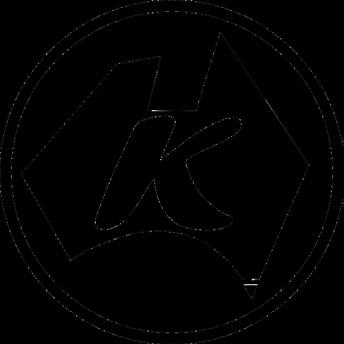










Chanukah – a time when we reflect upon the destruction of the Temple, the bravery of the Maccabees, the rebuilding the Temple and the preservation of a valuable commodity, namely oil.
Let me consider how these matters resonate today with the extremes of our climate.
In recent years, our country has been devastated by fire and flood. Climate change and its impacts have been felt globally.
Many people fear that these significant changes threaten the future of our planet. This psychological fear is known as eco-anxiety. Many are unaware that they are experiencing this type of anxiousness and that they have been impacted psychologically. They are concerned not just for their future, but for that of future generations.
Eco-anxiety does not affect everyone in the same way. It seems to be more prevalent among people who are more conscious about protecting the environment. Symptoms of eco-anxiety include elevated levels of stress, sleep disturbance, agitation and increased worry about the future. In some cases,
it may also lead to depression. In 2015 the medical journal Lancet included the term solastalgia.
The term was coined by Australian philosopher Glenn Albrecht. He defined it as a set of psychological disorders that occur in a native population following destructive changes in their territory, whether as a result of human activities or the climate.
It is believed that solastalgia affects people who have suffered the consequences of a natural disaster and this is what differentiates it from ecoanxiety.
Returning to the concepts behind Chanukah, in Australia we are in the midst of an environment that has experienced destruction from bush fires in 2019 and floods in 2022.
Recently, Australian Jewish Funders (AJF) convened its inaugural LaunchPad Leadership Alumni Retreat in Bowral. The theme of the gathering was Connecting for Impact.
More than 70 philanthropic, lay and senior professional leaders attended. They explored ways to build relationships, strengthen leadership and create opportunities to harness the power of collaboration and innovation for greater meaning and connection in Jewish life.

Among program highlights were a session with the Ukrainian Ambassador to Australia, His Excellency Mr Vasyl Myroshnychenko and a moving keynote address by Alex Vynokur, chair of the United Ukraine Appeal.
Jessica Chasen, Head of JCA’s Annual Campaign, was fulsome in her praise for the event.
“LaunchPad Leadership retreat put a fire in my belly and fed my soul. I'm so grateful to have met amazing leaders in our community from across Australia.
“It gives me hope for the future knowing we will plan together and move forward with great strength,” Ms Chasen said.
AJF CEO and LaunchPad founder Tracie Olcha said the retreat was “a unique opportunity to challenge the status quo, dream big and act boldly as one Jewish Australia”.
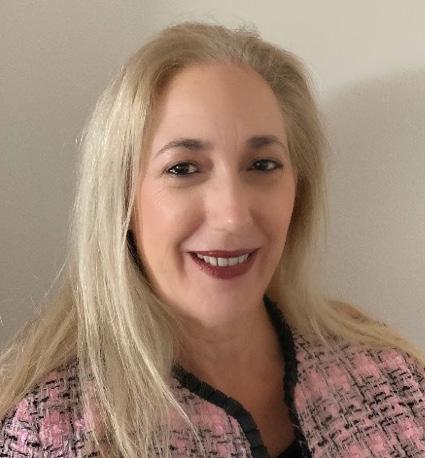
To hear more about the program and future LaunchPad opportunities, email Rebecca Adler, AJF’s community and innovation manager: rebecca@ajf.org.au
Even among those not directly impacted, it left many with a sense of powerlessness and fear for when this may next occur. No longer the one in a 100-year flood, it is also no longer the seven years of feast and seven years of famine referenced in the bible, hence our increased anxiety.
Remembering the Maccabees, as a community we can all become defenders of our planet. What can we do as individuals to help save Earth and reduce our anxiety about climate change and the environment? Consider your own eco-anxiety and what you can do as a defender.
While I did not experience anxiety, I did experience frustration at a recent stay away from home. The hosts of our Airbnb went to great effort to provide general,
green and recycle waste bins in our apartment. I was diligent in following the rules and was irritated on my trip to the council garbage bins downstairs to find general waste in the other receptacles.
As individuals we can all ‘do our bit’, but the feelings of powerlessness, hopelessness and anxiety emerge when we are overwhelmed and let down by others. Another precept of Chanukah is rebuilding. From a psychological perspective it is important to have a rebuild of self. Consider what you may need to increase your resilience. Are you engaging in a regime that promotes good health, both physical and mental? Are your values and beliefs aligned with rebuilding yourself and rebuilding your own environment?
As a defender and rebuilder of the environment, consider the temperature you set on your heater or air conditioner. Are you making good use of your recycling? What throwaway plastics do you use? Can you engage in a more sustainable lifestyle?
Finally, we focus on our precious commodities. For each Chanukah candle you light this year, consider the critical importance of water, food and shelter. Do you truly value these and do you engage in practices that will sustain these valuable resources?
Wishing all readers Chag Sameach and a happy and healthy Chanukah.

The first CKids Shabbaton was recently held in Australia.
Ckids is an international club for Jewish children aged 3 to 12, which has been inspired by the teachings and vision of the Lubavitcher Rebbe.
It is all about exposing boys and girls not familiar with large Jewish communities to their Jewish identities.
The Shabbaton saw children gather from far afield – many of whom live in remote areas that have only small Jewish communities – on the Gold Coast.
The weekend was coordinated by several Queensland Hebrew schools, Chabad of Northern Queensland, Chai Kids in Brisbane and the Gold Coast Hebrew Congregation Hebrew School.
It was a reward for children that participated in the international JewQ Jewish learning competition and included a visit to Movie World and a Saturday night bowling trip.
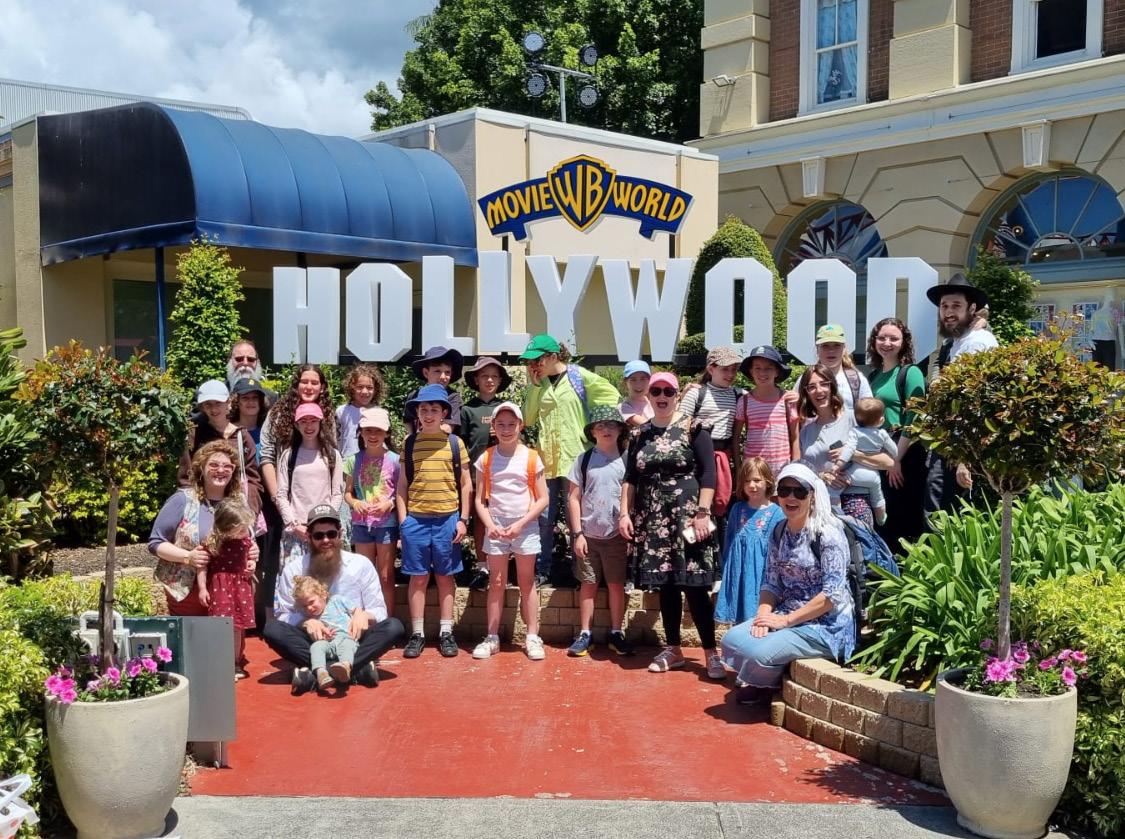
The competition was inaugurated three years ago to build momentum among youngsters to learn more about Judaism and bring Jews together.
To learn more about Ckids, go to www.ckids.net.au
Jews across Australia were recently celebrating with talented footballer Harry Sheezel picked up by North Melbourne in the AFL draft.
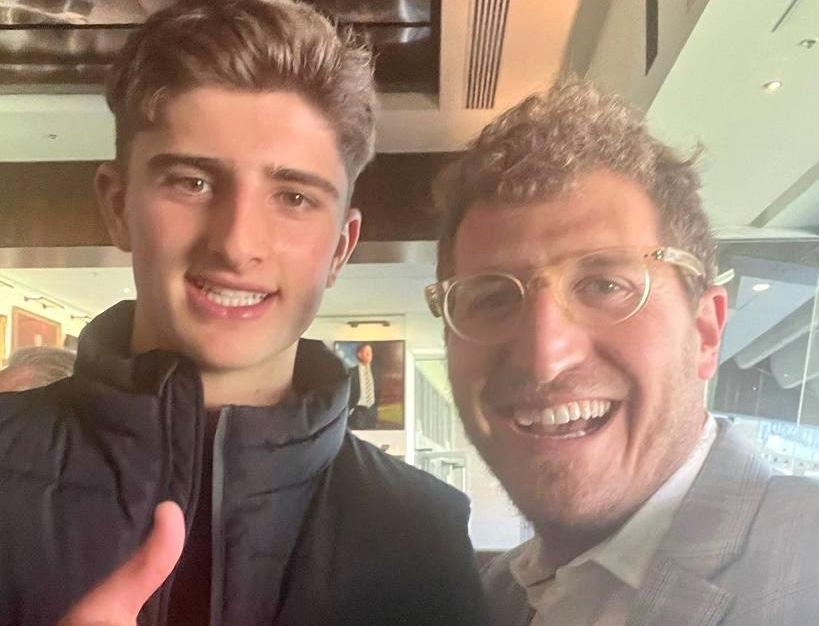
Harry, a Mount Scopus graduate, is the first Jewish AFL player to be drafted this century.
At 184cm tall, Sheezel is all but a giant by Jewish standards and I have no doubt he will continue to be a tremendous source of nachas to our community.
I know that Harry will continue to inspire a generation of young Jewish boys and girls, who will now be able to point to him as the pinnacle of sporting excellence in our national game.
Disappointingly, despite the incredible success and the pride of our community, it was sobering to see antisemitism play out online in the immediate aftermath of Sheezel's selection. Facebook comments
RABBINIC PICKUP AVAILABLE DAILY IN-STORE AND ONLINE FINAL COLLECTION BY DECEMBER 25THand court cases, are more overt. At times though just knowing a Jewish person or having exposure to Jewish culture can be a more covert way of helping people to think differently about Jews.
While some people will always hate Jews no matter what, in Australia there is still a great deal of ignorance about Jewish people.The reason why I’m involved in so many cross communal, multi-cultural and multi-faith events is that I truly believe that to break down stereotypes, to combat hate, antiSemitism and discrimination, we must educate the next generation.
Recently, I was joined by the Archbishop of Melbourne and Imam Saaed at the Immigration Museum to do just that. More than 150 school children joined us for an Q & A called “Ask the Faith Leader Anything”. Nothing was off limits. We were asked about the way we prayed, what we eat, how we
CHANUKAH 2022 LIMITED EDITION CHANUKAH DOUGHNUTS AVAILABLE DAILY FROM DECEMBER 18TH - 25TH 100% gluten free dairy & nut free! W W W 4 M E G L U T E N F R E E C O M A U 4 3 9 A K O O Y O N G R O A D , E L S T E R N W I C K , 3 1 8 5 0 4 0 1 8 3 5 6 5 6 4 M E G L U T E N F R E E PRICING $4 50 EACH / $24 FOR A PACK OF 6 CINNAMON BITES: $1 / $6 FOR A PACK OF 6
4 M E G L U T E N F R E E PRICING $4 50 EACH / $24 FOR A PACK OF 6 CINNAMON BITES: $1 / $6 FOR A PACK OF 6
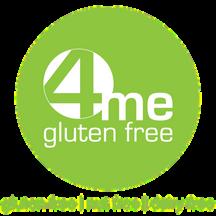
Growing up in Sydney, with its yearround beautiful weather, Mitch Burnie loved spending time outdoors in nature and gardening. Today, at 29, Burnie has turned that love into a project serving the city’s Jewish community: an urban farm.

After high school, Burnie avoided going to university: “I wanted nothing to do with it,” he told me. “I had no intention of going.” Instead, he earned what he dubbed “life experience” working as an informal Jewish educator at the Emanuel School and as a Habonim youth leader in the UK. Thereafter, he started working with a Sydney-based organisation called Shalom, tasked with creating community activities for young Australian Jews. “Through these activities I was growing community and building connection,” he said.
As part of his role at Shalom, Burnie looked at Jewish communities around the world to see if there were programs that could be emulated in Sydney. In 2018, he travelled to the United States, where he met with many Jewish organisations, including Hazon, Moishe House, and Jewish Outdoor Farmer, doing interesting things for young people. After meeting those Americans, he realised that there was a growing movement focused on “connecting agriculture to Judaism”.
After returning home, Burnie wanted to open an urban Jewish farm in Sydney, but there was a problem: “I didn’t yet have the skills or knowledge.” So, he took a short sabbatical from his job to seek out the training he needed. In early 2019, he was accepted into Hazon’s three-month Adamah Fellowship, a program for adults in their 20s and 30s that integrates organic agriculture, farm-to-table living, Jewish learning, community building, social justice and spiritual practice.
“I was the first and only Aussie to have ever been on it,” he said. “Before I went, I spoke to the British person who runs the Jewish community urban farm in London. I realised this didn’t just have to be an American thing. It could be global.”
The fellowship, which he spent living in a tent on Lake Miriam in Falls Village, Connecticut, at the Isabella Freedman Jewish Retreat Center, was a formative experience for Burnie. “I woke up every day at 5 and sang the Shema with a group of like-minded Jews from across America. We were all there learning about regenerative agriculture and how to link it to Jewish festivals. We were delving into our people’s history before exile.” The main lesson he learned? “Jews were people of the land before we were people of the book,” he said. “We can only be people of the book if we understand the land.”
When the fellowship finished, Burnie had a clear vision for what he wanted to create in Sydney. “I reached out to Hakoah and asked if I could have a tiny corner in their massive complex to start our urban farm. They said, ‘Yes – go for it.’”
Adamama, Australia’s first Jewish urban farm, was born. Its name – a mix of the Hebrew word adama, meaning
earth or soil, and mama – roughly translates as “Earth mother”.
“We brought lawn mowers and whipper snippers and started clearing the land. We spent the first three months of 2020 building all this momentum, but then the pandemic hit,” he said. “When we eventually came out of the lockdown, everyone wanted to come check us out because Adamama was outdoors. People wanted to learn about sustainable farming because food scarcity was on their minds. We had the perfect place for everyone to go.”
Since those early days, Adamama has continued to grow, hiring staff to expand its programs. Today, it offers weekly volunteer sessions on zero-waste cooking, community events around Jewish festivals and monthly classes.
Earlier this year, the urban farm moved to Randwick, to premises subsidised by the local city council. “The [city council] said to me, ‘Mitch, if you bring Adamama here, if you bring schools and participants, we will promote it.’ And so, we did.”
More than 5,000 people have volunteered at Adamama. At least 20 volunteers gather each Friday morning and usually a dozen on Sundays. They learn practical, hands-on ways to engage in permaculture, creating healthy habits, soil regeneration, and
urban farming. The workshops offered at Adamama focus on sustainable living, including compost making, garden design, pickling and following the Jewish calendar in nature.
The pickling workshops are especially popular, with the pickles sold at local grocery stores using ingredients grown at the farm and any profit reinvested in the farm. “We do pop-ups [at schools and community groups] to teach people about preserving food: sour dill pickles and kraut,” said Burnie. “Any excess food grown at the urban farm is taken by volunteers at the end of sessions, as well as interested members of the public.
Gary Samowitz, who was helpful in organising Adamama’s first space, is proud of the success that the urban farm has become. “It’s a great activity because its intergenerational. You have parents with kids and grandparents learning about farming,” he said. “Now there is a huge demand for people getting their hands dirty out in the sun, learning about some of the Jewish principles of farming from Mitch, so he has created a wonderful movement.”
Burnie’s model looks like it may soon be spreading to other parts of Australia.
In Melbourne, Elinor Hasenfratz is running Australia’s second urban Jewish farm, the Beth Weizmann Urban Farm, which has been operating for 18 months.
“Originally it was a traditional community garden model, where you would rent a box for a year, and you would have your single box that you had to take care of,” she said. “That worked well pre-COVID. They had a teacher who would show people what to do.”
But during the pandemic, and after extended Australian lockdowns, the garden boxes became less well maintained.
Hasenfratz, whose parents were avid gardeners, and who attended an agricultural high school in Adelaide, saw an opportunity.
“When I saw there was a lack of direction, I wrote a proposal to Beth Weizmann and I said ‘there [are] such good bones [for this urban farm], there is so much potential. You just need a coordinator for the gardens.’”
Beth Weizmann suggested that she take on the role as urban farm coordinator herself. “Mitch in Sydney was incredibly helpful during that time,” she said. “That’s when it shifted from a community garden to urban farm.”
“It’s so great to see the idea spreading,” said Burnie. “Every Jewish neighbourhood should have one.”
This story originally appeared in Tablet Magazine (tabletmag.com) and is reprinted with permission.

To mark the fourth birthday of its Maccabi Life Program, Maccabi Australia has upgraded and enhanced its Health and Wellbeing platform with a significant free offering.
Those interested can simply click onto the Maccabi Life website https:// maccabi.com.au/maccabi-life/ and access a plethora of articles, recipes, videos, webinars and programs).
They cover the five pillars of wellbeing, namely physical, social and financial wellness, emotional wellbeing and nutrition.
Each month the platform will be updated with relevant and meaningful content provided by experts.
There are on-demand workouts for all ages, guided meditation, mindfulness and stretching, and a range of tools for measuring and tracking personalised wellbeing.
The site also has carefully curated content to ensure it is aligned to Jewish values and lifestyle.

So, there are recipes, health tips and information for the key Jewish festivals, with a wellbeing focus.
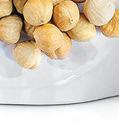
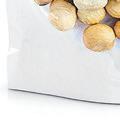
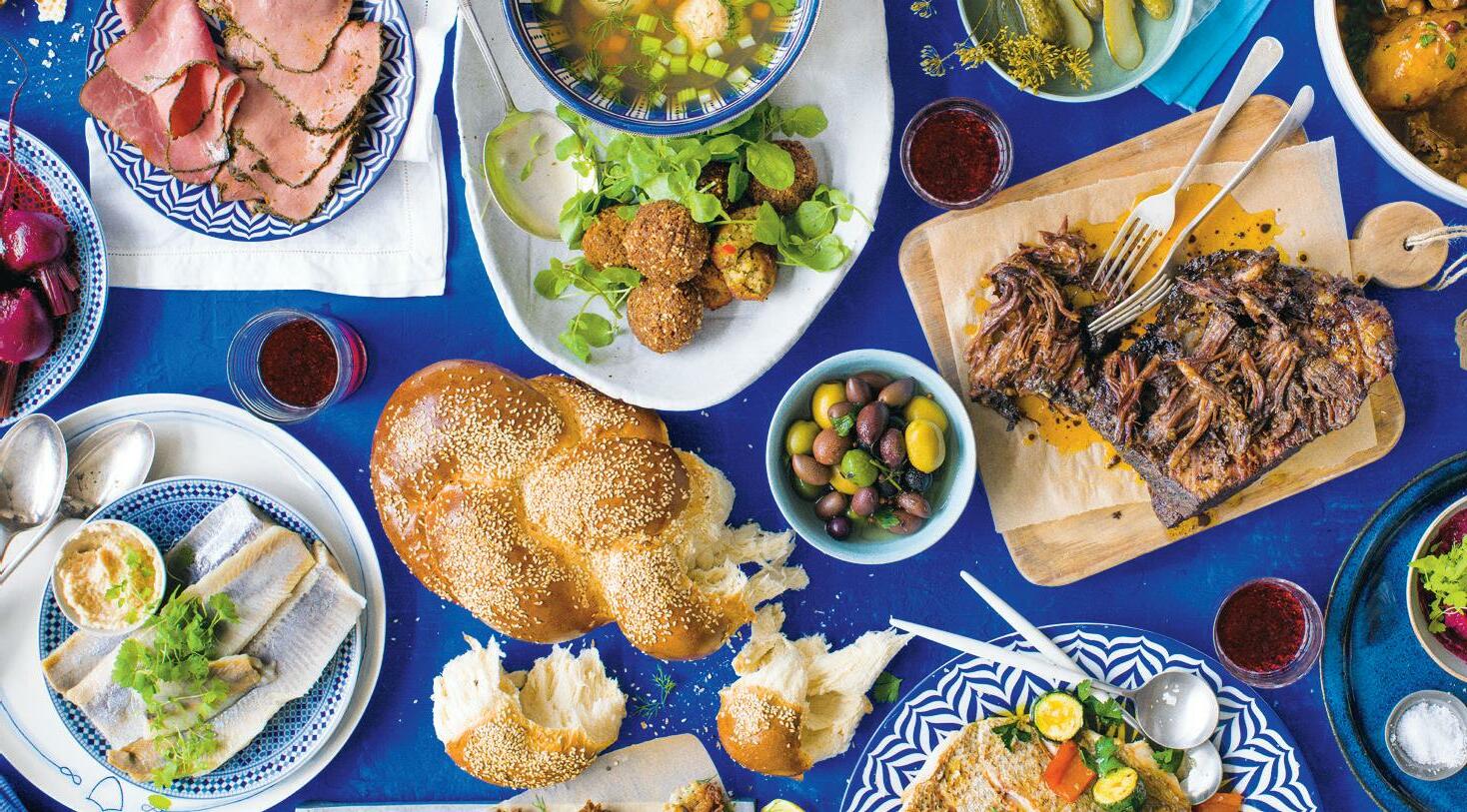
The program is accessible and available on all devices, from desktops to mobile phones.

The personalised content can be linked with most fitness devices.

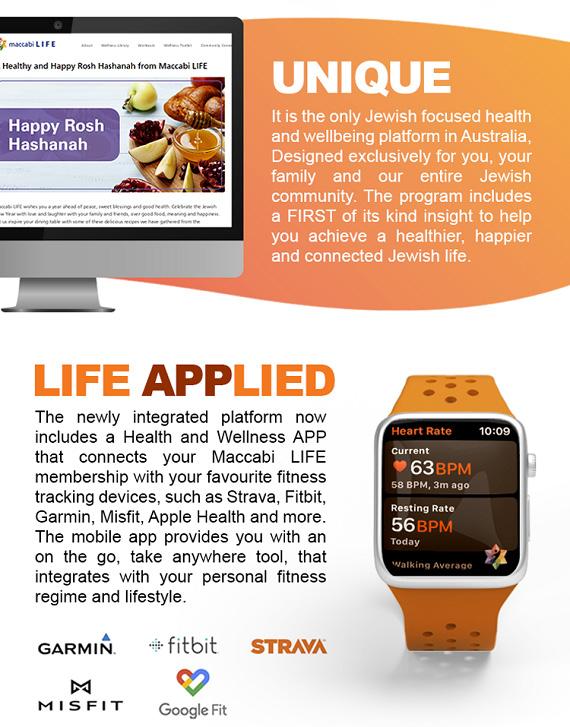
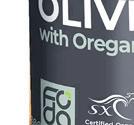
Among the platform’s key features is its community social walls, which enable people from all walks of life to communicate and share their experiences with like-minded individuals.
By posting insights, recognition of others, workouts, recipes and tips they will receive rewards points.
The Kosher Australia app was released several years ago and has been an excellent tool for Kosher consumers.
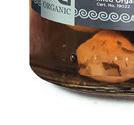
Still, like all apps, it has its limitations. Products are often added or removed, names might be slightly updated or completely changed, and these are not always immediately reflected in the app.
Now, in an exciting new development, from December 16th Kosher Australia is introducing a barcode scanner for supermarket products and shelf labels into the app. This will allow consumers
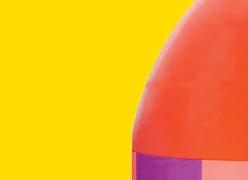

to instantly check if the products are kosher or not.
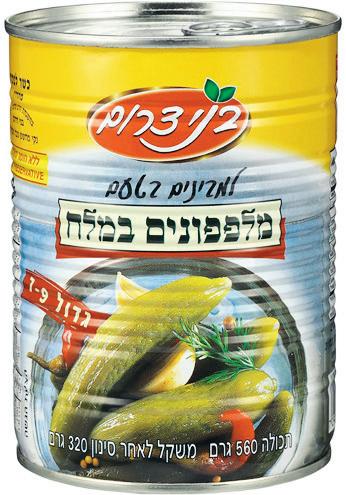
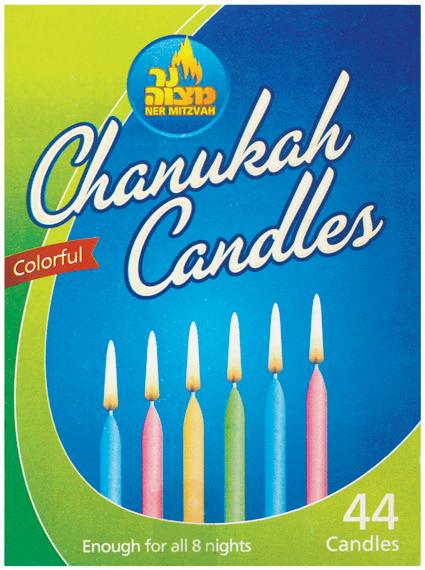

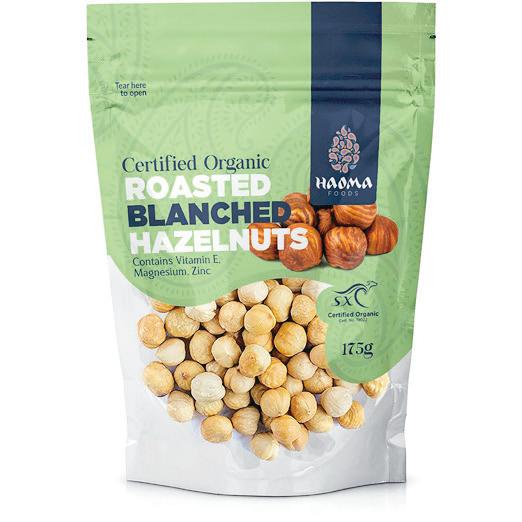
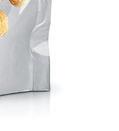
The layout is similar to the current app, with the addition of a barcode logo in the top right corner, which, when clicked, opens a camera scanner.

Simply place the product in front of the camera and the app will scan the barcode and match it to a product in the existing database.
If the product is not kosher, or not currently in the database, the app will allow you to submit the barcode for review.


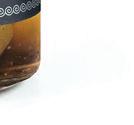
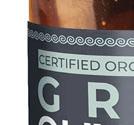
The regular use of the app will still function as is has, with product searching and categories easily available to scroll through.
Except where expressly stated otherwise, content in The Melbourne Jewish Report is provided as general informations only. The articles in this paper have been contributed by a third party. The opinions, facts and any media content here are presented solely by the author, and The Jewish Report assumes no responsibility for them. It is not intended as advice and must not be relied upon as such. You should make your own inquiries and take independent advice tailored to your specific circumstances prior to making any decisions. We do not make any representation or warranty that any material in the papers will be reliable, accurate or complete, nor do we accept any responsibility arising in any way from errors or omissions. We will not be liable for loss resulting from any action or decision by you in reliance on the material in the papers. By reading the papers, you acknowledge that we are not responsible for, and accept no liability in relation to, any reader’s use of, access to or conduct in connection with the papers in any circumstance. Photographs submitted by individuals or organisations are assumed to be their property and are therefore not otherwise credited. All articles in this paper have received the expressed consent of the author to publish in this paper.
The Jewish Report; ISSN 2204-4639



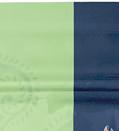
Publisher: The Jewish Report Pty Ltd (ACN 167302981)
Distributor: TJR Distribution Pty Ltd ACN 165158029
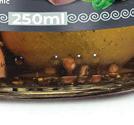
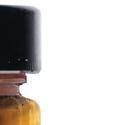
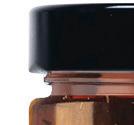




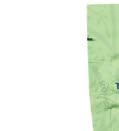
Comments or suggestions to: editor@thejewishreport.com.au
Article submissions to: www.thejewishreport.com.au/article-submission-guidelines
Advertising: editor@thejewishreport.com.au

Website: www.thejewishreport.com.au
Printer: Spotpress Pty Ltd

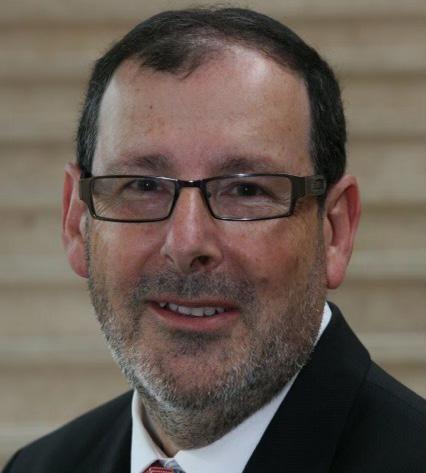
This time of year is full of joy and celebration as we are about to embrace Chanukah – the Festival of Lights - and all it encompasses spiritually, physically and gastronomically!
Rabbi David Freedman has contributed so many wonderful Judaica-themed questions this year –and we thank readers for embracing this quality quiz so wholeheartedly. The feedback has been phenomenal!
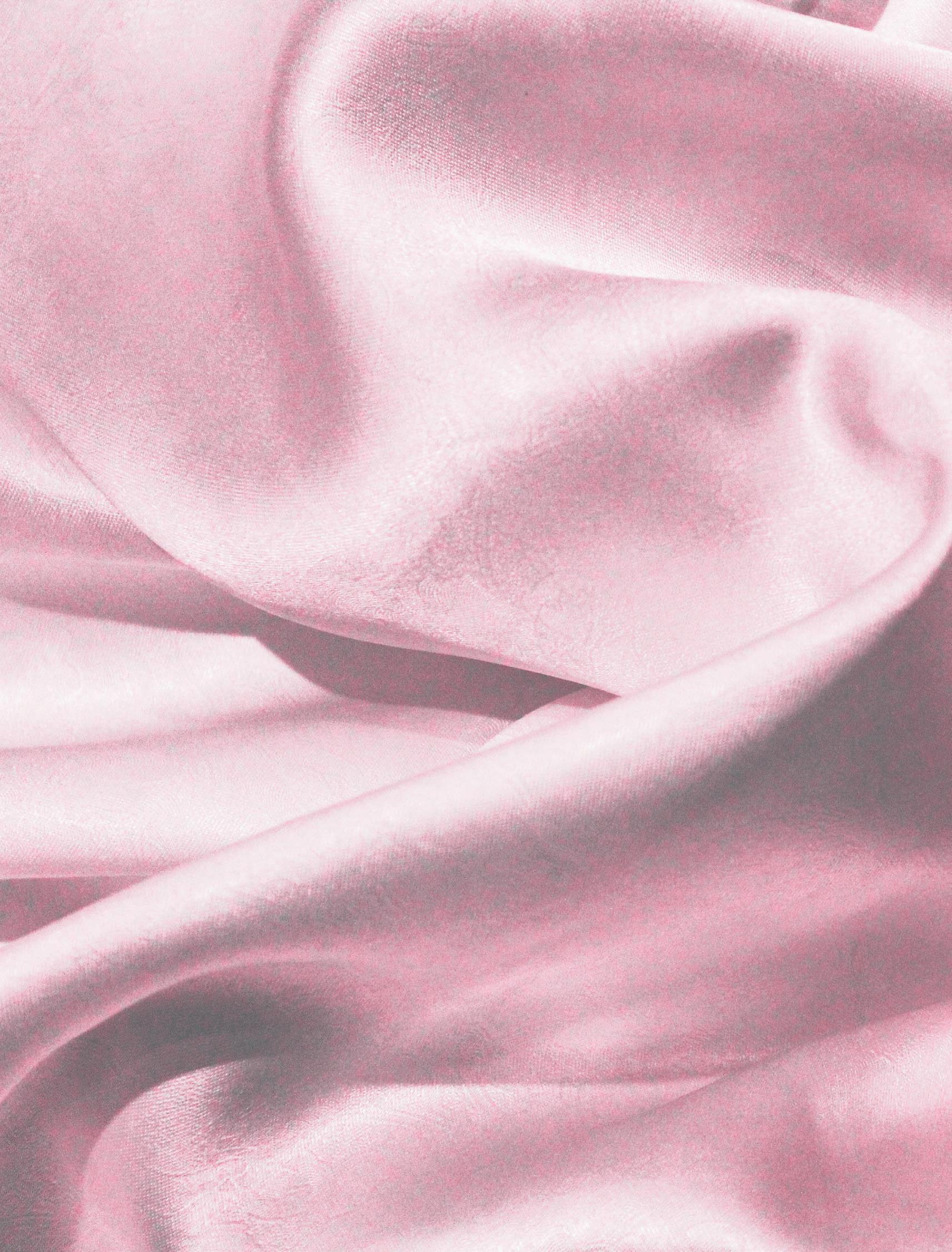
With G-d’s help and against all odds, the Maccabees triumphed over their oppressors and ensured a rededication of the Second Temple in the holy city of Jerusalem. It was miraculous and an extraordinary victory. In that spirit, you’ll find Chanukah questions below exploring geography; games; fried foods (hello sensational sufganiyot –those delightful jam-filled donuts); gifts; history; prayers and so much more!
Read this with family and friends at a Chanukah party or anytime throughout this eight-day festival and beyond!
1. In which book of the Apocrypha do we find the story of Chanukah?
2. Was Mattathias a Cohen, Levi or Yisrael?
3. What was the name of the king whose actions provoked the Jewish rebellion led by Mattathias?
4. In which Judean town did the Chanukah revolt begin?
5. Did the Hasmonean revolt take place in the first, second or third century BCE?
Chanukah most famously mentioned: a) Berachot b) Megillah, or c) Shabbat?
10. The initial letters of the first five verses of Maoz Tzur spell out which Hebrew name?
11. Chanukah was in many ways the conflict between Judaism and what other …..ism?
designed by Benno Elkan, was presented to the Knesset (The Israeli Parliament) in 1956 as a gift by whom?
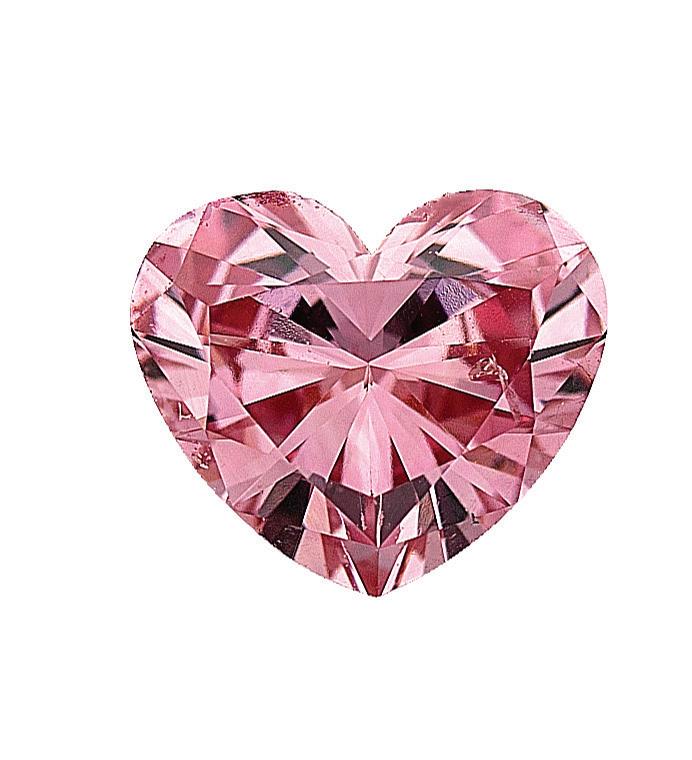

16. Where did Jeffrey A. Hoffman spin a dreidel made by Israeli silversmith Gideon Hay for about one hour?
17. Why are sufganiyot eaten on Chanukah?
18. Why do we use a shammash when lighting the Chanukah lights?
19. Which US president began the custom of lighting a Chanukah Menorah?
a) Jimmy Carter
b) George H.W. Bush
c) Bill Clinton
20. Why do we recite three blessings before kindling the Chanukah lights only on the first night of Chanukah?
21. Al Hanisim - For the miracles is a Hebrew text inserted into which two prayers?
22. Who wrote the oratorio ‘Judas Maccabaeus’?
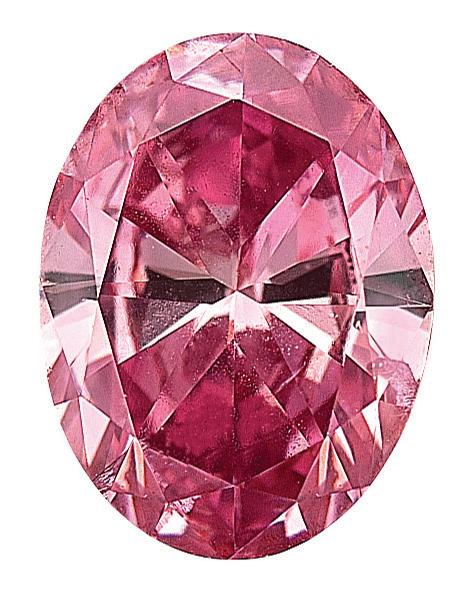
6. Besides Judah, name one of Mattathias’ other four sons.
7. How many candles are lit throughout the eight days of Chanukah?
8. Inspired by the Jews who fought against the Syrian-Greeks, what did Yosef Yekutieli propose in 1929?
9. Unlike most of the other festivals in the Jewish calendar, Chanukah does not have a separate tractate of Talmud. In which tractate of Talmud is
12. What does the word Chanukah mean?
13. What gift was traditionally given to children during Chanukah in Ashkenazi Jewish communities?
14. What is the most obvious difference between the Menorah that has become the emblem of the State of Israel and the Menorah that is lit in Jewish homes during Chanukah?
15. A bronze Menorah 4.30m high, 3.5m wide, and 4 tons in weight,
23. What is the difference between a dreidel for use in Israel as opposed to one in use in the diaspora?
24. Whose statue was placed in the Temple by the Syrian-Greeks?
25. Seinfeld introduced which celebration as a comedic alternative holiday for those without a particular interest in Chanukah or Christmas?
David is a registered pharmacist and the owner of a large network of pharmacies across Australia, focused on providing hospital pharmacy services.
He employs more than 1,000 people across his pharmacy network. He founded and is CEO of Slade Health, one of the largest providers of TGA- licensed chemotherapy compounding services in Australia.

David’s experience in healthcare is extensive. He has been involved in the provision of medication management services and supply to the aged care sector.
He has a strong understanding of and experience in a range of healthcare settings.
His background operating a successful business in a highly regulated environment, leading and undertaking a series of mergers and acquisitions and his broad commercial experience will serve Jewish Care well.
Jewish Care thanked retiring board member, Mike Debinski OAM, who joined the board in 2009 and served as president from 2012-2019.
Earlier this year, Mike was awarded an OAM in the Australia Day Honours for his community service.
“We are very pleased that Mike will remain on the board as a co-opted director and that we will continue to benefit from his expertise and guidance,” said president and AGM chair Lisa Kennett.
In welcoming incoming chief executive, Adjunct Professor Alan Lilly, Ms Kennett said he has brought a wealth of experience and expertise in health and aged care to Jewish Care. “He has already made a positive impact and has implemented some great initiatives.”
2023 will see Jewish Care celebrate 175 years.
Good luck. Enjoy. Hopefully, learn something new about your Jewish heritage and tradition.David Slade has been elected to the Jewish Care board while Simone SzalmukSinger, Reuben Zelwer and Sharon Gdanski have been re-elected to serve another term. JEWISH CARE (VICTORIA) New Jewish Care board member David Slade
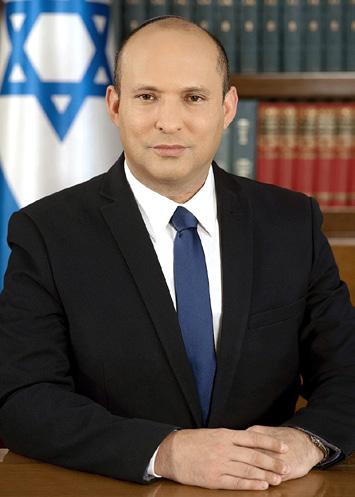
Keren Hayesod-UIA’s life saving work this year. With more than 60,000 olim arriving in Israel in 2022, KH-UIA together with The Jewish Agency for Israel are the key partners with the government in assisting with the aliyah and absorption of those olim and ensuring they have a brighter
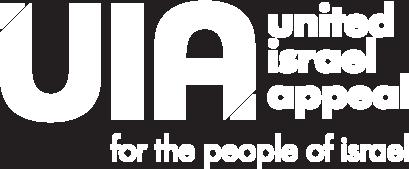
Spaces for Australian Friends of Hebrew University’s (AUSTFHU) 2023 Legacy Mission are filling fast, so here is a reminder not to miss out if you are interested.

The trip has been specially organised between Israel’s 75th Yom Ha’atzmaut celebrations and Shavuot.
Highlights of the Mission include briefings by some of Israel’s leading scientists and academics, as well as visits to regular tourist spots in Jerusalem.
• Imagine experiencing Hebrew University through its new Centre for Computational Medicine – the first of its kind in Israel – which is paving the way for a better future.
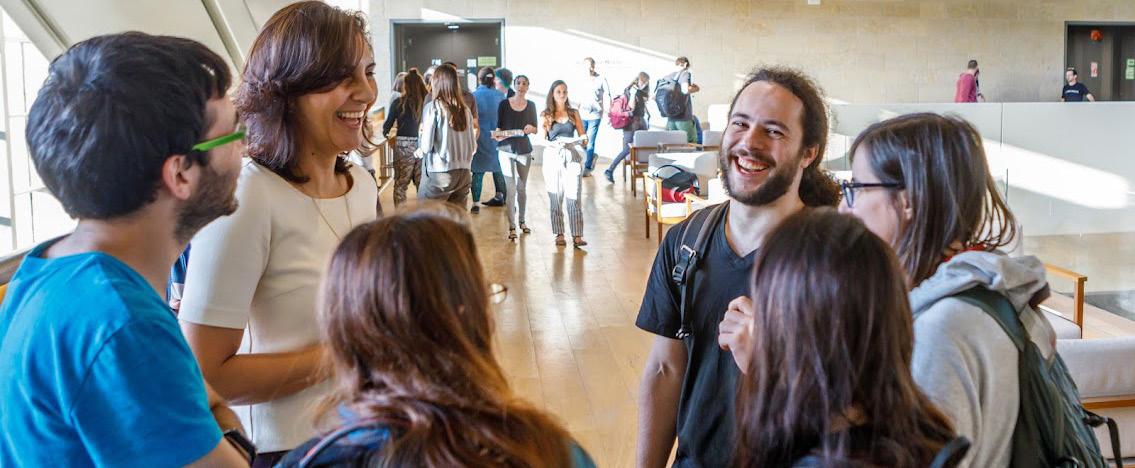
• Imagine enabling victims of spinal cord injuries to retrieve some of their former mobility by activating neural pathways.
• Imagine identifying the placental genes that can help prevent miscarriages and pursuing their use.
• Imagine turning the tables on cancer tumours by identifying their individual idiosyncrasies and using that information to destroy them.
• Imagine replacing invasive biopsies to diagnose cancer and other diseases with a simple blood test.
• Imagine contributing to the global battle against malaria by discovering how a clever parasite evades the human immune system.
Are these the fantasies of the future, the hopes and dreams of future generations?
No. Rather, they are a continuation of Hebrew University’s tradition of innovation.
You can help to take care of generations to come by joining AUSTFHU’s Legacy Mission.
In that way, your legacy will ensure the continuation of Hebrew University’s ground-breaking work.
For more information, email AUSTFHU’s CEO Rob Schneider at ceo@austfhu.org.au
Meet the non-Jewish woman who is spreading joyous Judaism online.
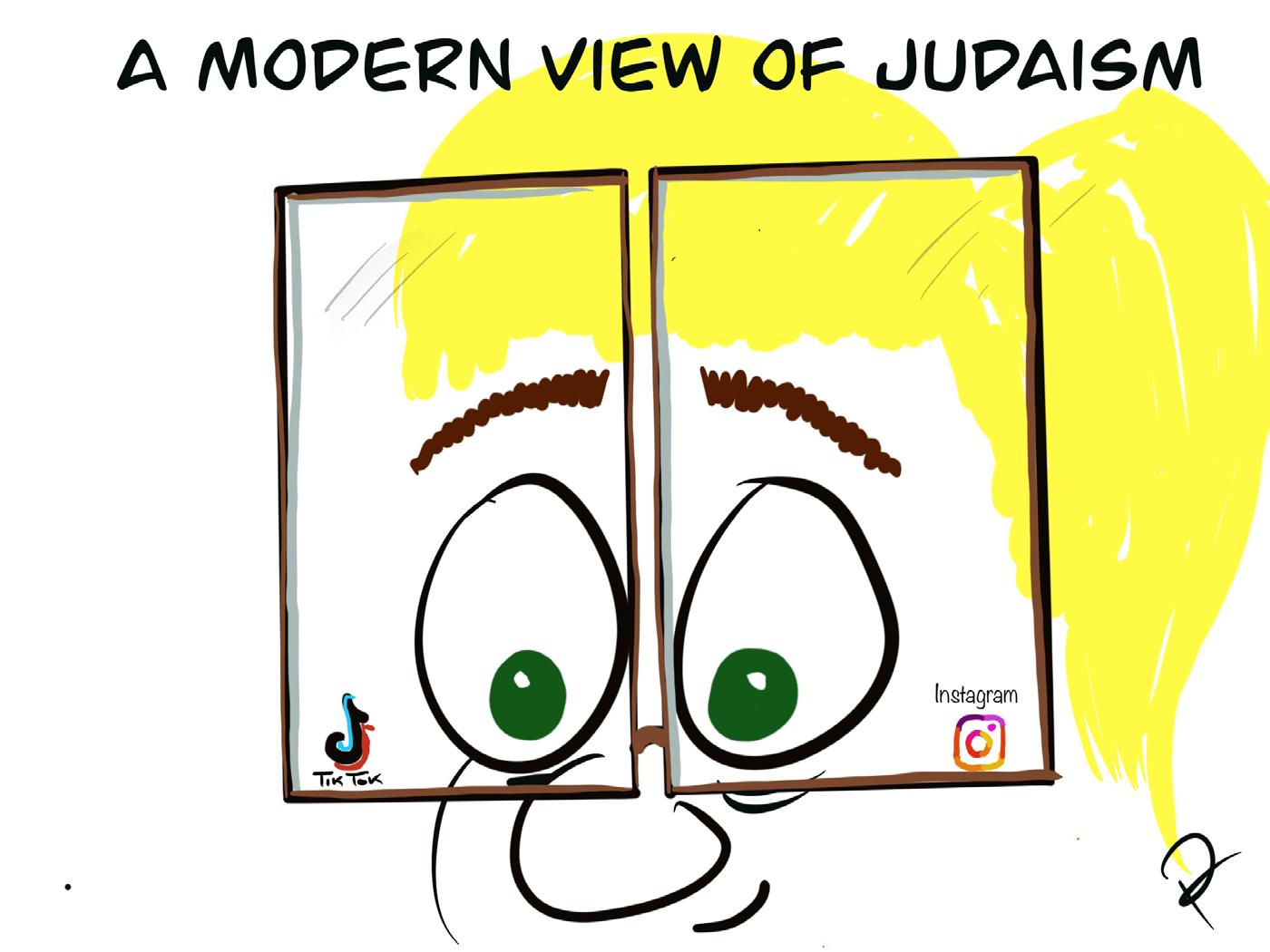
Two years ago, Adriana Fernandez started working as a nanny for an Orthodox Jewish family in Boca Raton (Florida). She quickly learned about how they observed Shabbat, ate kosher food, dressed in modest clothing and celebrated a variety of holidays. She was intrigued, and she wanted to share what she was learning with the world.
Fernandez shared her experiences on TikTok and Instagram, posting photos and videos about wearing modest clothing, preparing for Shabbat with the children she nannied, and finding Doritos with Hebrew lettering on them.
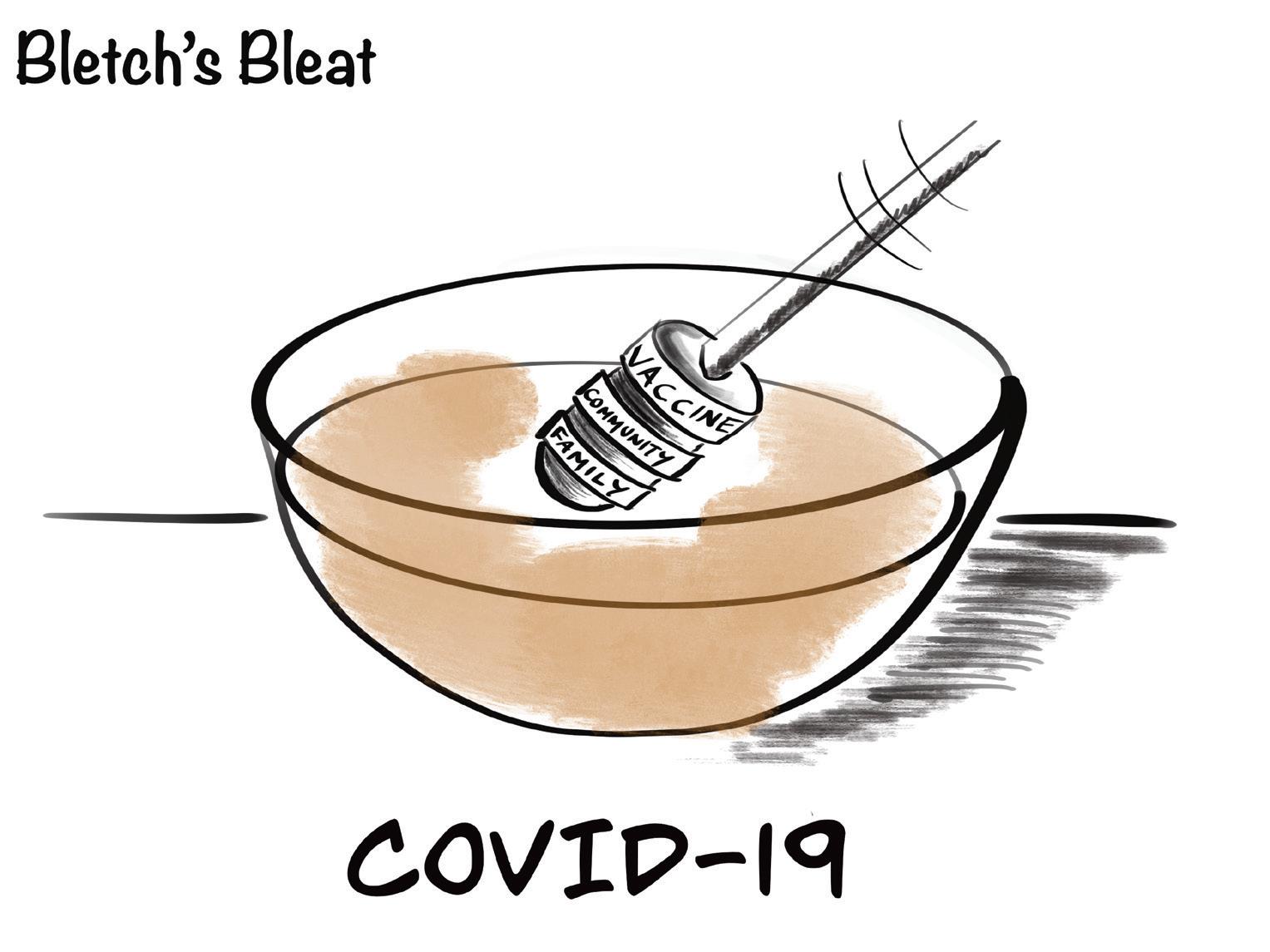
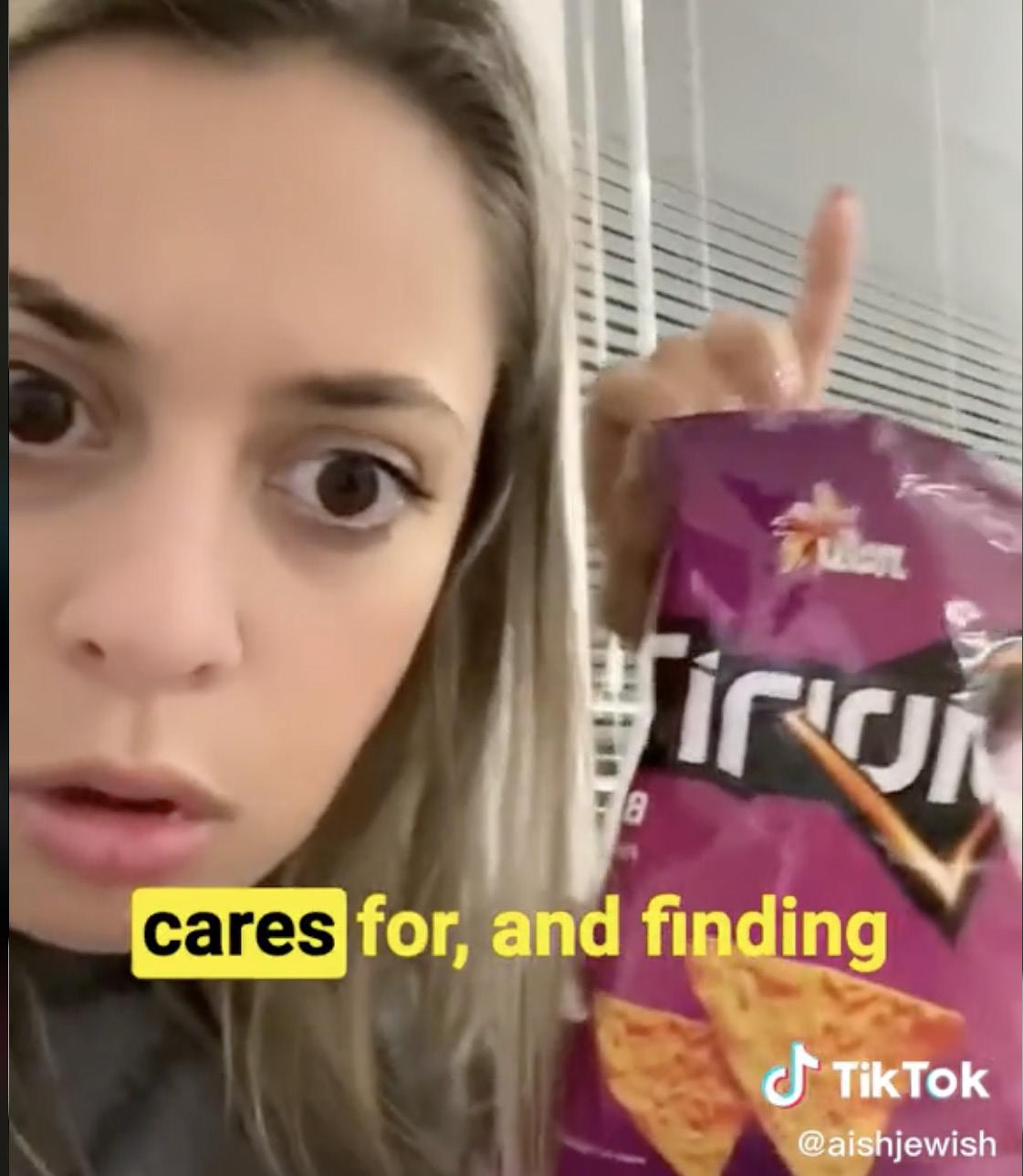
The young influencer, who has 16.4 million views on TikTok and nearly 33,000 followers on Instagram, educates her audience about Jewish topics as she learns them as well.

“I was shocked that my TikTok and Instagram took off so quickly,” said Fernandez. “So many of my followers are Orthodox and Jewish. That makes me so happy.”
She constantly receives messages and comments from observant Jews thanking her for representing them in a positive, accurate light.
“I make these silly and funny videos and I get the sweetest messages ever, like people telling me I’m doing a lot of mitzvahs,” she said. “When I see antisemitism, it blows my mind. Why would anyone think these traditions are horrible or weird? I think they’re fantastic.”
Fernandez also receives messages from Jews from all backgrounds who are inspired by her videos.
“I get messages from people who say they struggled with their religion and because of my posts they feel more inspired,” she said.
The non-Jewish nanny grew up in a religious Christian home in Florida and went to a private parochial school
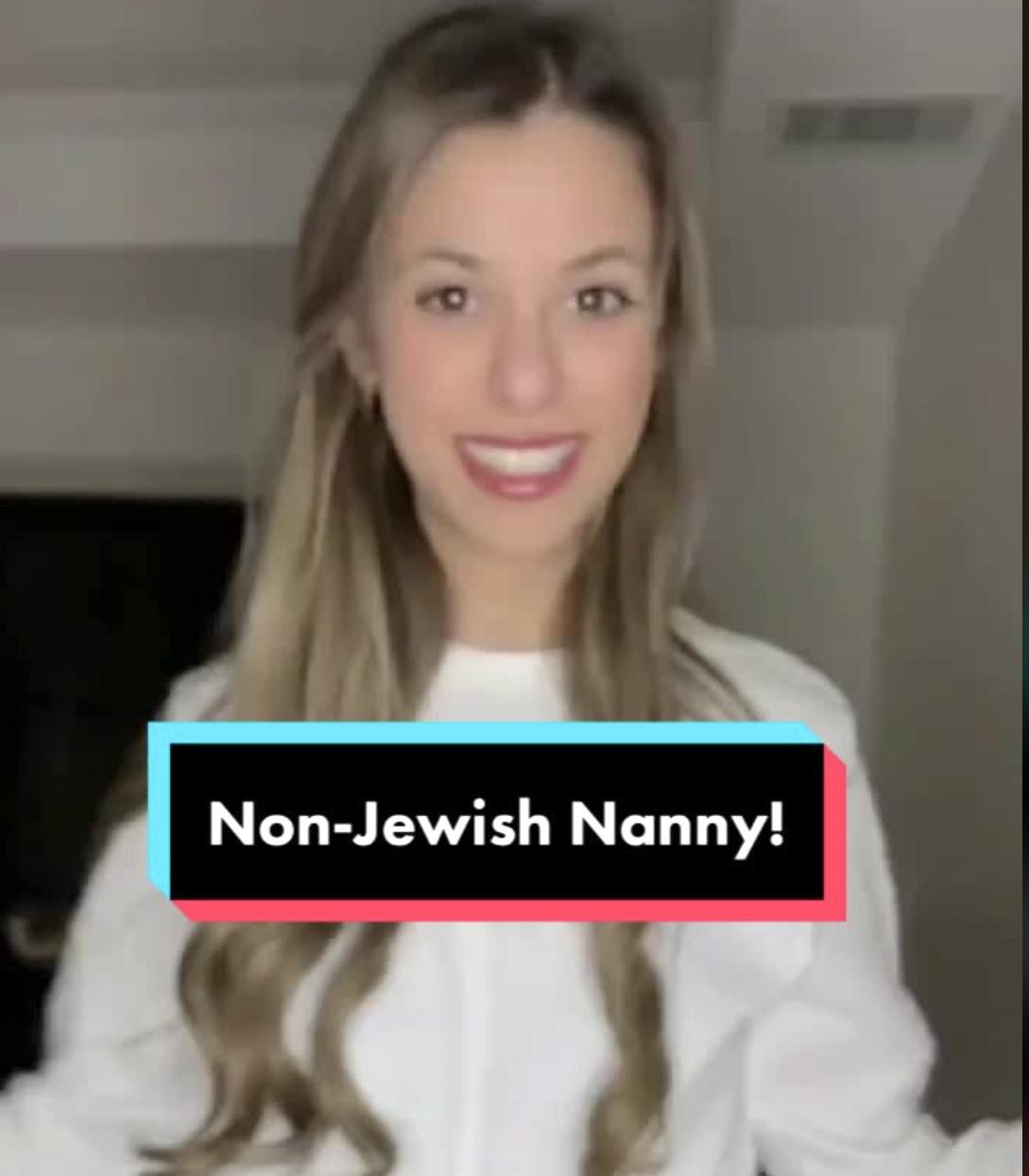
where she learned to respect other people’s cultures and religions.
“I was raised to be loving and accepting of everybody,” she said.
“Some people are antisemitic because they have no exposure to Judaism or poor exposure to it. They have a preconceived notion about Judaism that they learned from the media or in movies.” Before becoming a nanny, Fernandez, who is in her 20s, went through a rough time in her life. She was partying, worrying about her self-image online and off, and hanging out with
people who didn’t have strong values.
“My life was fast-paced and I was in a really dark place,” she said.
But when she started working with a Jewish family, her life turned around.
“So much of this world is unpredictable and unstable and what really kept me grounded and brought me back to reality was being surrounded by a community that was so focused on values,” she said. “It made me stop and say, ‘none of this matters’.” I wanted to be happy and have a wholesome family. That’s exactly what the Jewish community promotes. It was a wakeup call for me.”
Fernandez mostly learns about Jewish traditions through the kids she nannies. She watches with them Jewish educational videos made for kids and loves Jewish music. When the Miami Boys Choir was trending this past summer, she posted a TikTok talking about how they would be her Justin Bieber or One Direction if she were a young Jewish girl.
Yoshi, he’s Harry Styles for the Jewish community,” she says in the video. “I don’t make the rules!”
Working with children is what brings Fernandez the most joy. She enjoys helping them with their schoolwork, like learning the Alef Bet.
“Kids have such a fresh and innocent perspective,” she said. “They’re such a joy in that sense. If I’m in a horrible mood, hanging out with kids makes me so much happier.” When Fernandez has a more advanced question or wants to know about Jewish theology, she speaks to the kids’ mums.
“I talk to them about Judaism’s perspective on the afterlife and the meaning behind some of their observances,” she said. “They have given me an even deeper insight into Judaism and they are so willing to kindly educate me.” One question that Fernandez hears time and time again is whether or not she’s going to convert to Judaism. Many people who watch her videos are shocked that she’s not Jewish. But she has no plans to convert.
“I really like the fact that I have a voice as a non-Jew, which I think is more important and meaningful than if I were to become Jewish,” she said. “I can observe and take away a lot of beliefs and foundations and still live my life happily.” Still, Judaism has taught her a number of principles that she’s found comfort in.
“I know that everything is going to be okay because God doesn’t give you anything you can’t handle,” she said. “Judaism taught me that it’s easy to implement spirituality into your everyday life. The Jewish people are very mindful of spirituality. They incorporate God into everything.”
For now, Fernandez is going to keep creating content about her life as a nonJewish nanny for Jewish families. But in the future, she hopes to combine her skills as a nanny, opera singer and voice teacher and open up a sensory centre for kids where they can come and play.
“I have so many different ideas for my future, and I never know where it will take me,” she said. “I know I will have kids. Then, I’ll be a nanny to my own kids.”
 ANDREW BLITZ
ANDREW BLITZ
Well on the way to a’biz hundert un tsvantsik, Rabbi Dr Shalom Coleman celebrated his 104th birthday with his beloved Perth Jewish community in the first week of December. Rabbi Coleman CBE AM MA PhD Hon LLD (UWA) JP continues a legacy that spans generations.
Born in Liverpool in the UK, the rabbi is a proud dad and zeide to three grandchildren and three great grandchildren. Rabbi Coleman also delights in being a great, great, great uncle twice over, spanning five living generations of extended family.
Reflecting on Rabbi Coleman’s achievements is difficult to condense into a single article, but can be read in his many published works. The most notable of these is his book “Life is a Corridor”. The autobiographical accounts of his life immerse readers in modern history. The rabbi shared personal audiences with many of the great leaders who have shaped our era.
A student activist at a young age, Rabbi Coleman supported the evolution of Zionism. His dedication to the movement entails firsthand encounters with some of the leading Zionist pioneers, including David Ben Gurion, Menachem
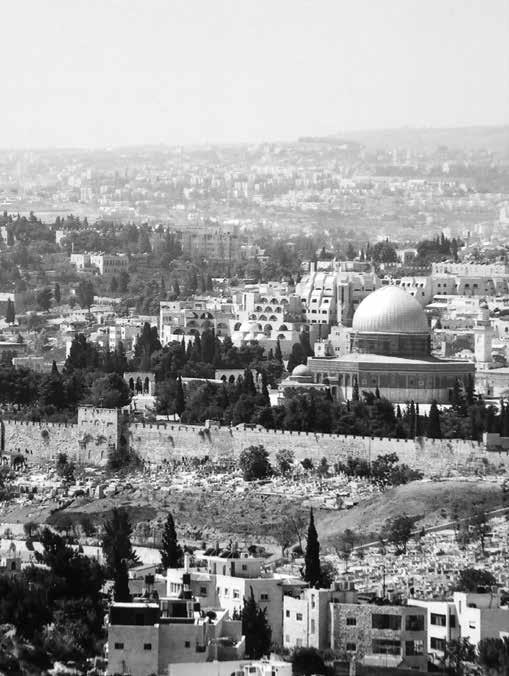
revolutionary educational initiatives and critical infrastructure, including the suburban relocation of the Perth Hebrew Congregation.

In a distinguished military career, Rabbi Coleman provided wartime service to the Royal Air Force. He served as a wireless operator/air gunner on missions in France and Western Europe. In 1944 he was recruiting officer in England for the Jewish Brigade Group. He was decorated with the 1939-1945 Star Medal and War Medal. He then maintained his service as a military chaplain in both South Africa and to the 5th Military District of the Australian Army. He takes pride of place each year in the ANZAC Day Veteran’s Parade.
Rabbi Coleman’s civic contribution extends far beyond the rabbinate. His leadership included tenures as president and district governor of Rotary and vice president of the Save the Children Fund.
Royal Australian Justices Association of Western Australia.
As honorary rabbi and life governor to the Maurice Zeffert Home, Rabbi Coleman has taken his energy into his very senior years. He remains an active daily attendee at Perth shules and continues to exude great cantorial koach. He imparts his wisdom at weekly Talmud shiurim that have been running unabated for decades.
He is probably best described in this paraphrased quote by his contemporary, Rabbi Raymond Apple, Emeritus rabbi of the Great Synagogue, Sydney.
“Small in stature, Rabbi Coleman is a giant in energy, enterprise and enthusiasm, and became one of Australia’s best known rabbinic figures.
Rabbi Coleman has influenced the lives of so many. Professionally, his career traversed four rabbinic postings: in Potchefstroom and Bloemfontein (South Africa), Sydney and Perth.
It is his service to the Perth Jewish community for 20 years from February 1966 that laid the foundation for the religious renaissance and sustained growth of Australia’s third largest Jewish community. Rabbi Coleman transformed Perth Jewry by delivering

He was a district secretary of Probus Centre, South Pacific.
Add to this list grand chaplain to the Freemasons, a member of the Murdoch University Senate, a Justice of the Peace, patron to the Family Association of Australia, chairman of the Perth Dental Hospital Board and a member of the Karrakatta and Pinarroo Valley Cemetery Boards. As recently as this month, Rabbi Coleman was awarded a certificate in the Roll Of Honour of the
Largely thanks to him, Judaism became strong in Perth, with the evolution of new synagogues, a Jewish school, kosher certification and enduring educational activity. No longer is it a struggle to be Jewish in Western Australia.”
Rabbi Coleman’s community and well-wishers around Australia and the world extend a mazel tov on his latest birthday and greatly admire his strength and ongoing contribution. May he continue in good health to inspire us.
Andrew Blitz is Rabbi Dr Shalom Coleman’s biographer, having compiled and published the book Spiritual Treasure in 2013.
The anti-Semitic skinhead couldn't believe the kind storeowner was a Jew.
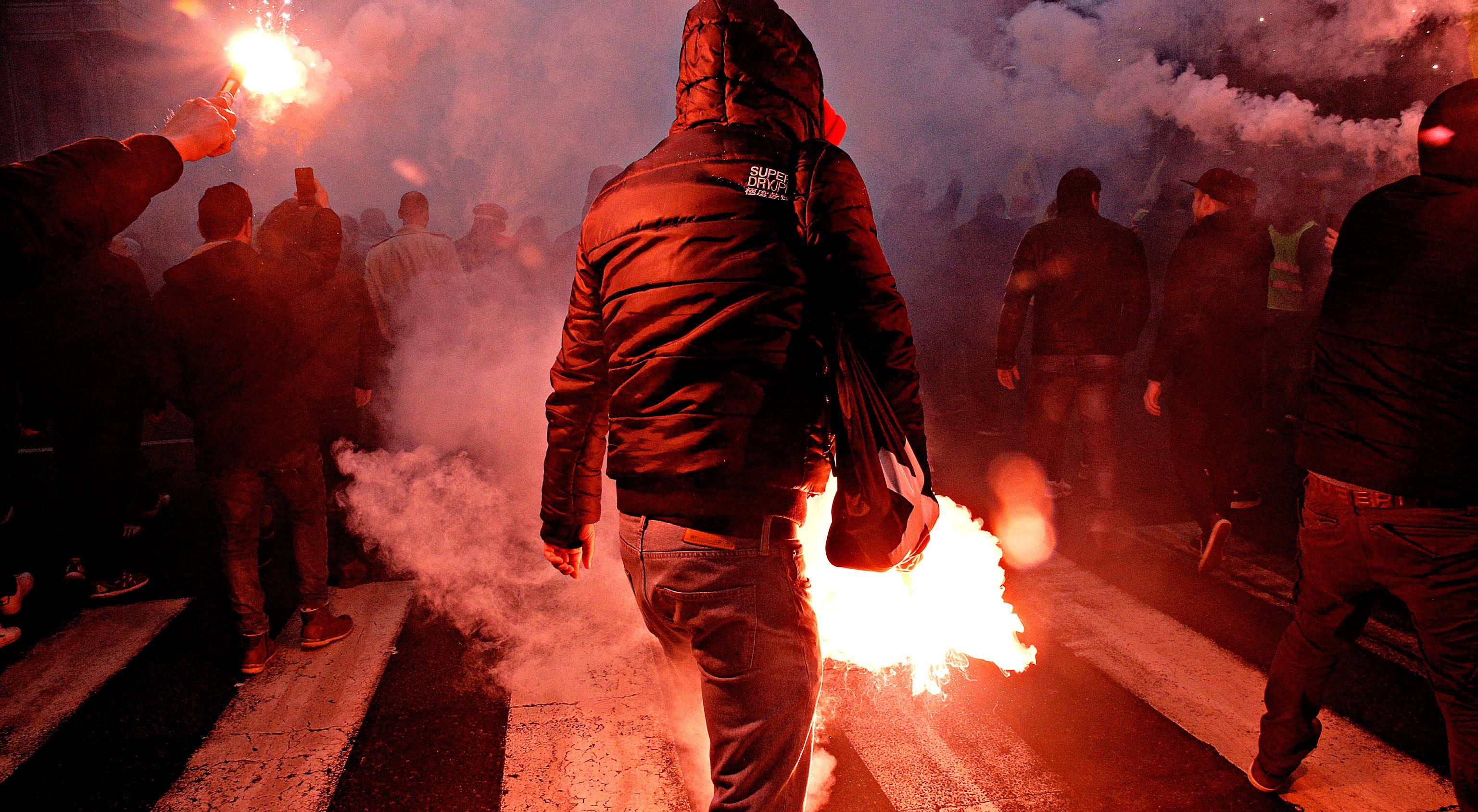
Daniel Kravitz owns Denver's Home Again Furniture and, like he says, you never know who will walk in the door. Saying only that he toned down the language a bit, Kravitz tells the story of his encounter with a unique customer: “I receive a phone call answering a classified advertisement I placed to sell a black bedroom set for $250. During the conversation the young man on the other end of the line says he has only $700 and do I have enough furniture in my store to furnish his whole apartment?
Word of the Year: Goblin Mode
"I ask how big his apartment is. Turns out in addition to the bedroom set, he needs a dinette, a sofa, tables and a lamp. I say, if you’re not picky, I can furnish the apartment for $700. "He didn’t show up until the next day.
"A man walks in, shocking in appearance. He’s a skinhead. Tall. 6’2”. Trim. In his early 20s. Sleeveless T-shirt. Dark pants. Doc/Martin boots [made in England, very popular with the subculture, punk rockers, skinheads, etc.]. “On his arm are tattoos. I cannot help but notice what they say: ‘Kill N***ers and Jews.’ I realise right away who this individual is.”
Are you Dan? We spoke on the phone yesterday. Do you still have the black bedroom set?
“I say: ‘You’re the young man who says you have $700 to furnish your apartment.' I show him the bedroom set. We walk around the store. I can give you this sofa, and these tables … in 20 to 30 minutes we figure out what he wants. I throw in some dishes – glad to get rid of them.
“We get back to my counter and desk. I write up a receipt, including the
inventory and the regular prices. The total comes to about $1,000, which I discount down to $700. I hand him the receipt for him to sign on the bottom. He looks over the receipt and says, ‘Boy, you really gave me a big discount.’
“I say: ‘That’s the deal.’” You won’t get in trouble for discounting this much? “No, it's my own business.” I really appreciate it. “I say: 'I’m a man of my word,' and he pays in cash. I help him load the furniture onto a pickup truck. We work up a sweat. When we we're done, I ask him whether he would like to have a Coke, or something else cold to drink. I have no other customers and have time to sit with him. So I give him a can of soda and take one myself.
“Now this whole time I kept observing him to see whether he was carrying a gun or a knife. You see that kind of tattoo – he’s not a choir boy. “When we loaded his furniture his shirt lifted up, and I saw there was no weapon in his pocket. I felt comfortable he didn’t have a weapon. “So I say: ‘I couldn’t help but notice your tattoos. Do you really believe that?’”
Hell yes, I do.
“Have you ever hurt anybody?”
Yes.
“How many blacks and Jews do you know?”
I don’t need to know any. I know they’re bad. Blacks are trying to take over the white women. Jews are controlling the banks and the government.
“I say: ‘I hate to tell you – I disagree with your propaganda. I grew up in Park Hill around a lot of black people. Unless you know somebody you can’t make judgments about a whole culture.’
“I saw that he was not connected to what I said. So I say: ‘I bet you don’t talk to your mother and father – if my son had the tattoos on his arms that you have, I wouldn’t talk to my son. I don’t think you talk to your parents.’”
No, I don’t.
“I realised I hit a nerve.
“The next thing I say: ‘It wasn’t that many years ago that your mother held you in her arms, and she loves you. I’m a parent. I know that your parents are hurt and miss you, and don’t approve of your ways.’
“Then I say: ‘I want to share with you … I’m Jewish.’”
No, you’re not.
“Why would I lie to you about that?"
You don’t look like a Jew.
“What does a Jew look like?”
Not like you.
“I point to my front door and show him my mezuzah and tell him that Jews put it on their doorposts.
“And I have a siddur, so I open it up and say: ‘See, this is Hebrew.’
“I show him my store hours and say: ‘Notice, I’m closed on the Sabbath. I live as a Jew.'
“'What you think of Jews is not right. I pray with people who have numbers on their arms. You're part of a group of people who believe that the Holocaust didn’t happen. Not only did I lose family members, I pray with people who have numbers on their arms.'”
No, it's a Holohaux.
“'Absolutely not true. You know what? I think you’re a nice guy. I know by some of the things you’ve said to me how appreciative you are that I gave you a good deal. I know that your mother and father raised you with good values. Why you are a part of the neo-Nazis, I have no understanding.'
“'One of two things is going to happen to you. You’ll end up dead, or you’ll end up in prison and some huge bubba is going to take you for his wife. You need to think about what you’re doing. These are the only two possible paths if you keep on doing what you're doing.'
“'You told me you’ve hurt people. Do you want to hurt me?'”
No. You’ve been nice to me.
“'I’ve only been nice to you because you gave me an opportunity to be nice to you. You hurt people you don’t even know because of the colour of their skin or their religion. You need to think about that. The people you hang around with don’t care if you’re in jail or dead. But your mother and father do care.'
“Then another customer walks in.
“'Listen, I can’t talk more now, but if you want to talk to me more, I’ll be glad to talk to you. I want you to think about what I’ve said to you because everything I’ve said is true.'
“I didn’t know what he thought. But he came in with the prejudice that Jews are greedy and money-grabbing. He had to realise, here’s a Jew who just gave him a really good deal, helped him load his truck and sweated with him. I think what hit him was when I said: ‘It’s not long ago that your parents held you in their arms.’ He left.”
Months later, maybe a year later, he came back to Kravitz’s store.
“He says to me: ‘Do you remember me?’
“I say: ‘Of course.’"
At this point in the retelling, Kravitz tears up.
“He was dressed completely differently. His hair was grown out – no more shaved head – normal hair. He didn’t look like a skinhead. He was wearing a long-sleeve shirt, jeans and sneakers. He looked like a whole different person.
“I ask: ‘Did you reconnect with your parents?’
Yes, I have.
“He says: ‘I need to give you an apology. I realise now how offensive my tattoos were to you and how hurtful they are. I can’t afford it now – but I’m going to have those tattoos removed.'
“He gave me a hug and I’ve never seen him again.”

Each year I am asked a similar question – should a couple getting married on Chanukah light a Chanukiah at their wedding? Rather than answering this time, I took advantage of the educational opportunity and asked if one can even get married on Chanukah. The answer is “yes”, but why? The Talmud famously states that we do not mix two different joyous occasions as they can detract from, or be confused with, one another, preventing adequate attention to each.[1] For this reason, for example, the custom is not to get married on Purim and some forbid it.[2] With so many similarities between these two festivals, why do people get married on Chanukah, but not on Purim?
Purim represents the ultimate miracle of physical survival against a physical threat. Haman hated the Jewish people and therefore wanted to exterminate every last one of us. The gallows that were set did not discriminate against female or male, young or old, believer or non-believer – the very existence of
Jews necessitated their eradication. Jews were never welcome into society regardless of what they could potentially add or remove.
Chanukah, on the other hand was very different, in this sense: Jews were not hated for who they were, but for what they did. It was not their existence, but practice that threatened Greek culture. Jews that acted as Jews were
however, is a celebration of the most basic Jewish need – to live freely and actively as Jews. The enemy of Purim hated us so much that they would kill us regardless of what we did. The enemy of Chanukah loved us so much that they wanted us to subscribe to their Hellenistic way of life.
Returning to our question, celebrating the miracle of Purim represents a
accommodating than distinction. It is for this reason that it is common to get married on Chanukah as essentially the joys are two expressions of the same source – choosing to love rather than falling in or out of love, celebrating the perpetuation of our destiny and celebrating Jewish continuity.
Therefore, while there are questions around the blessings, one can light Chanukah candles at a wedding for the purpose of publicising the miracle, because, indeed, the miracle of a Jewish wedding is the perpetuation of the miracle of Chanukah. “Tthe strong were delivered into the hands of the weak, the many into the hands of the few.” Chanukah is a time to learn from our past as we spark, ignite and shine through the next generation, illuminating the path ahead for a brighter future.
different to those that were prepared to assimilate. Indeed, they were loved as people and only hated as Jews –if they could express their humanity through Greek society and abandon their particularity as Jews they would be welcome to not simply survive, but thrive. When read this way, the miracle of Purim is a celebration of the most basic human need – the ability to live and breathe. The miracle of Chanukah,
different type of joy to getting married – the former represents being alive, the latter how we choose to live. Celebrating Chanukah represents the same type of joy as getting married – we actively choose who we love to continue our people. A Jewish wedding is becoming rarer, not because of hatred, but because of love –universalism is more embracing than particularity and assimilation is more
[1] Moed Katan 8b
[2] Magen Avraham (696:18) for example forbids it citing the Talmudic statement around mixing different types of joys. While some like the Rashba (3:276) and the Shulchan Aruch (696:8) do permit it for technical reasons (defining the type of joy as one that is only experienced of a biblically mandated festival for example), the established custom is not to get married on Purim.
Chanukah is almost upon us and it is one of my favourite holidays. It is probably one of the easier holidays of our faith. All one has to do is light candles, eat donuts and latkas, and your obligation is fulfilled. In terms of outreach, it also tops the list. By handing over some candles and a tin Chanukiah, you have given them to the tools to fulfill the mitzvah. Public lighting in shopping centres and sporting arenas, and greeting cards have contributed to the worldwide interest in this holiday.
Chanukah also offers deeper messages and lessons – that appeal to young and old – that add to its beauty.
According to our commentators, in the portion of Vaeyshev, read in close proximity to Chanukah, there is a hint to Chanukah hidden in the words of a particular event.
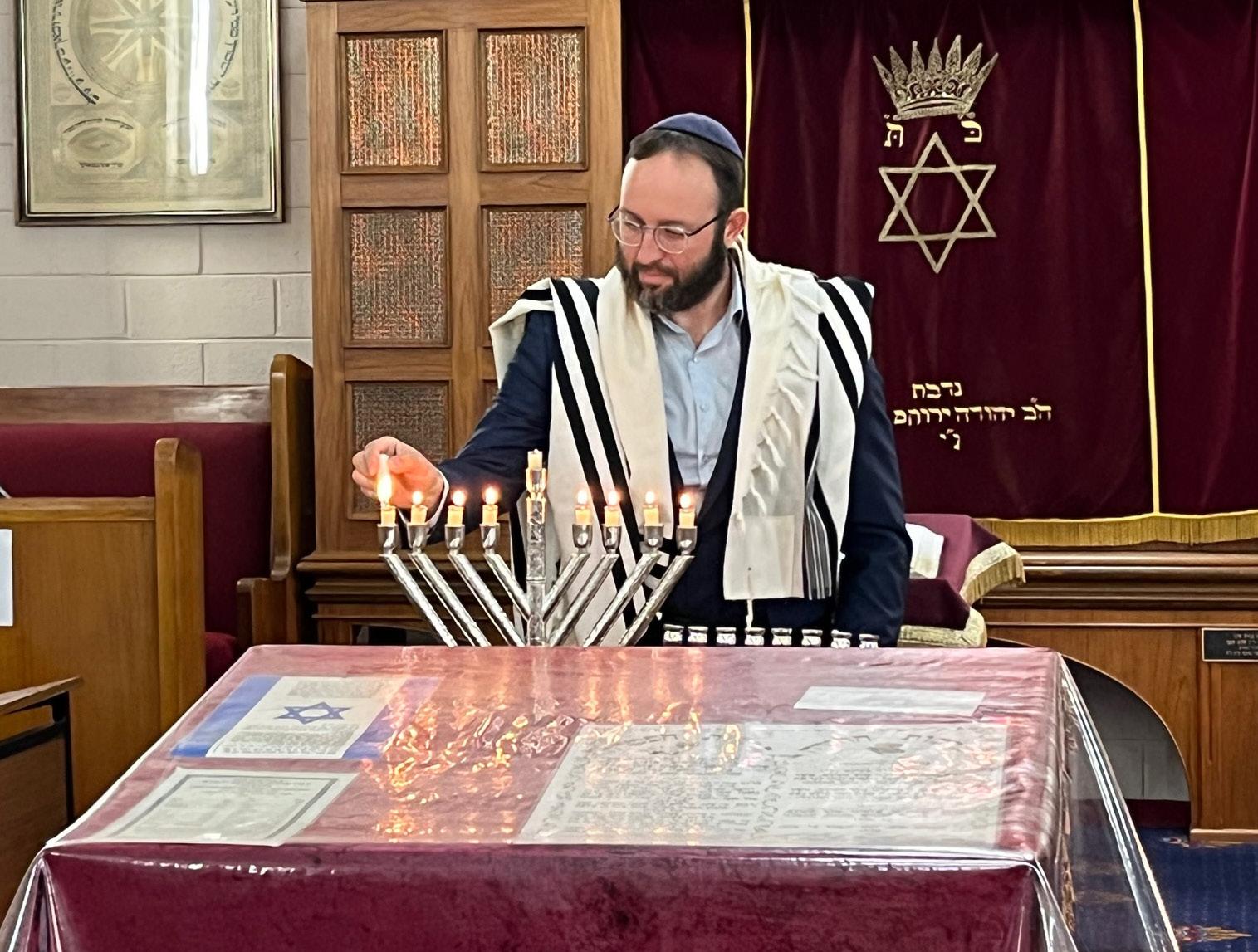
Potiphar, a wealthy and prominent man of his time, put Joseph in charge of his household. It would have been an amazing experience for any young adult. Imagine being 17 years old and being given such an exciting and prestigious job. Unfortunately, Potiphar's wife repeatedly tried to seduce Joseph. Joseph resisted the temptation and in the end she falsely accused him of seducing her and he was imprisoned.
The Torah says “Vayehi Kahayom Haezeh (it was like that day)” on the day she accused him. When it says “Kahayom”, what does it mean? There
is a hint from this word, which contains the letters Kaf and Hey, numerically 25, to the day Chanukah began, the 25th of Kislev. The story of Joseph's resistance happened on the very same day that Chanukah would occur hundreds of years later. According to the Torah, Chanukah's message, its power and essence, is that we are capable of accomplishing things that seem unattainable at first glance.
There are times when we can do things that would be contrary to world opinion.
Again, imagine being 17 and having nothing to lose. Joseph believed his
family hated him and he was then seduced by a powerful woman. If we psychoanalysed this, we would likely have excused his behaviour, having concluded that he was emotionally hurt, broken and traumatised. Things were understood differently by Joseph. By going against the tide, he rose above temptation.
Chanukah's original message – how one small jug could last eight days – was taught to us by him. Eight is a number which is one more than the natural order of things. Despite what the world tells you, we have the ability to rise above
our nature … to believe something is possible. We are reminded that the impossible is possible during Chanukah.
I met a rabbi from a small state in the USA a few years ago. After the Lubavitcher Rebbe told him to move there, he went out on Shlichut to serve there. Going to such a remote location was viewed with scepticism by many. On his first Shabbat, there was a knock at his door. A man standing before him told him to return to New York because he had no chance of succeeding in this town as there were no Jews living there and people weren’t interested in Judaism.
The rabbi and his wife felt terrible and had no idea what to do. However, he remained steadfast to his mission, staying true to his cause. A big supermarket chain contacted him the very next week asking for his assistance. For Chanukah, they wanted to sell donuts in their store and wanted to know how to make them kosher. This was a sign that the rabbi was in the right place. They subsequently built a beautiful organisation that includes a Jewish day school.
Chanukah carries a message we tell ourselves and the world. Let your children and yourself know that darkness can be transformed into light when we light the candles. We can achieve seemingly unattainable goals if we have faith and trust in The One Above. May this Chanukah be filled with light and blessing.
Celebrating Chanukah represents the same type of joy as getting married – we actively choose who we love to continue our people.ALLIA BULKHARI
What could have been an easy setting to bridge gaps, promote acceptance and bring people together has been replete with racism, antisemitism and hypocrisy
When Qatar won the bid to host the 2022 FIFA Football World Cup in 2010, the decision was met with scepticism. The criticism mounted from human rights organisations, some Western pundits with days approaching the World Cup even more, stemming from Qatar’s treatment of migrant workers, women and their take on the LGBTQ rights. Amnesty International even termed it “Qatar World Cup of Shame” and in its report stated that migrants, mainly from South Asian countries, were being abused and exploited in a number of ways, ranging from forced labour to appalling living conditions, while building the stateof-the-art stadiums. A Qatari official recently said “400-500” migrants died working on World Cup projects.
Qatar is the first Middle Eastern and Arab Muslim country to host the mega sporting event, which is symbolic in itself, given the pervasive Islamophobia and stereotypes surrounding the Middle East and what the region has been through. Yet one cannot help but notice the apparent incidents of hate and divisiveness arising from a range of political narratives taking centre
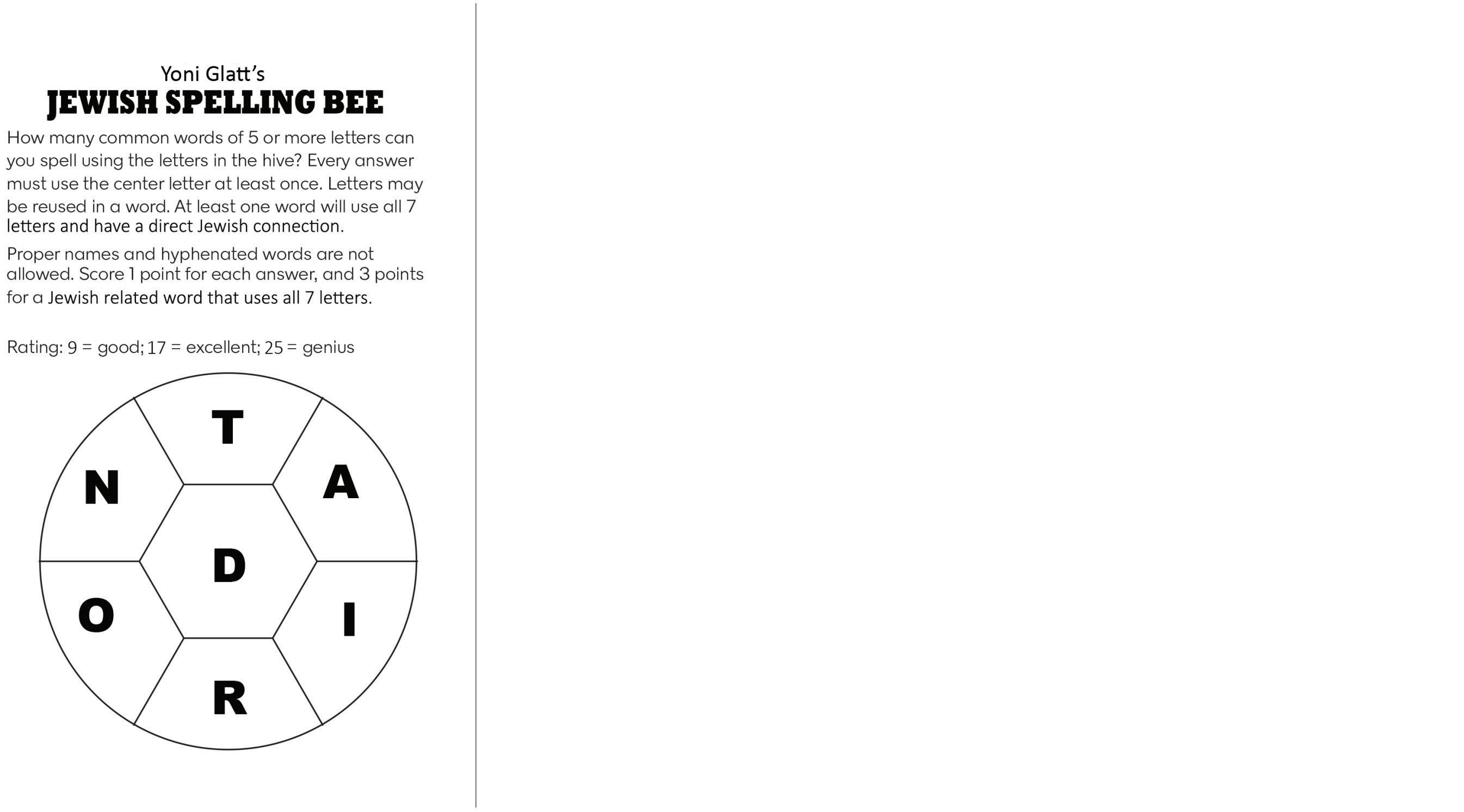
stage during this tournament of global importance.
When Israeli reporter Moav Vardy got yelled at by an Arab fan, an otherwise unique opportunity to bring people closer met a dead end. “You are not welcome here. This is Qatar. This is our country. There is only Palestine; no Israel,” the enraged fan was seen as saying in a video that went viral and was also posted on several Palestinian social media accounts. The act many consider was a kind of protest to demonstrate support for the Palestinian people despite its antisemitic and racist nature. If anything, it just went on to show that despite peace accords and normalisation of ties between Israel and Arab states, the hatred and xenophobic attitudes on the ground still persist. The stonewalling and outrage against Israeli citizens did not help the Palestinians, but reminded of a lack of tolerance and deep-rooted antisemitism still intoxicated in many Muslim communities around the world.
Many Israelis reported being treated with hostility and several videos pointed to people walking away from them when discovering they were from Israel. “We didn’t want to write these words, we are not the story here, but after ten days in Doha we cannot hide what we are going through. We are feeling hated, surrounded by hostility, not welcomed,” shared journalist Raz Shechnick, as cited by The Jerusalem Post. Reports also indicated that Doha banned kosher food and the Jewish prayer. The claims and Qatari emir’s statement himself that
“everybody is welcome” also fell flat with such events.

The World Cup also showed double standards on the part of some of the critics of the Arab nation, predominantly some Western pundits and media outlets that are selective in their outrage when it comes to rights abuses. The coverage and outrage are marred by racist views and some sense of moral superiority more than a genuine concern for human values and rights, as could be seen from a cartoon published by a French outlet, depicting the Qatari national team as terrorists.
Denmark, for instance, had its former PM Helle Thorning-Schmidt sport a blue dress with rainbow sleeves in support of the LGBTQ+ community and rightfully so. Yet Denmark’s own treatment of minorities, particularly Muslim Syrian refugees, has been far from humane or welcoming in the not-so-distant past. Denmark is the only country in Europe consistently demanding that Syrian refugees go home and even sent a deportation letter to children as young as 12. Its policy towards asylum seekers and refugees has become notably more hostile in recent years.
It is fair to criticise Qatar, but better and more plausible at the cost of some self-reflection by some critics, including Denmark, where I happened to have lived. Because, if not, it only reeks of White Saviour Complex and some perceived high moral ground.
Rights abuses and violations of migrant and refugee rights in the Western
hemisphere do not meet the similar kind of outrage. When 27 migrants died at the English Channel as France and the UK argued about who should be rescuing, the rage for those responsible was nowhere to be seen. Refugees are discriminated against based on their faith and the colour of their skin. Likewise, many from the LGBTQ+ community died as a result of gun attacks in the US and women are denied abortion. The US has seen nearly “240 bills introduced that directly roll back LGBTQ+ rights or criminalize gender-affirming care,” according to Ayman Mohyeldin of MSNBC, yet these concerning developments do not garner calls for boycott of the future World Cup in America.
Safe to say, this has been the most politicised World Cup and what could have been an exemplary venue for bridging gaps, promoting acceptance and bringing people together is, unfortunately, marred by racism and hypocrisy from many corners. But as someone with Muslim roots, I stand against antisemitism and do not feel proud of the way Israelis are being excluded and shunned at the World Cup in the guise of it.
The writer is a journalist from Pakistan, mostly covering social issues and women's rights, and an Erasmus Mundus scholar currently based in Prague.
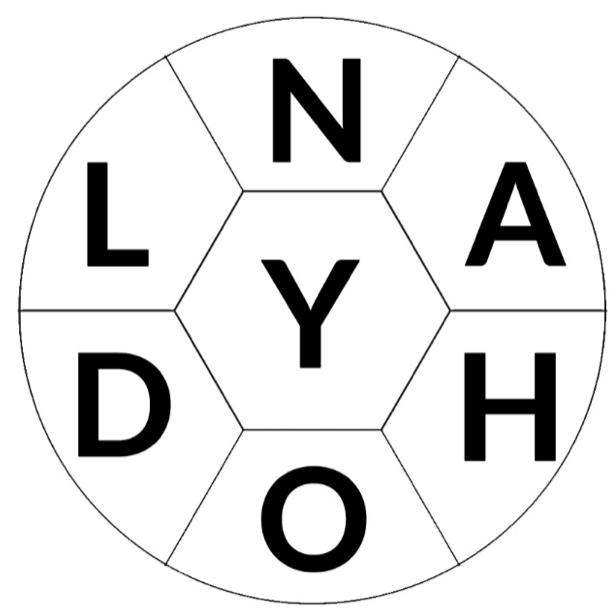
 RABBI YAAKOV GLASMAN
RABBI YAAKOV GLASMAN
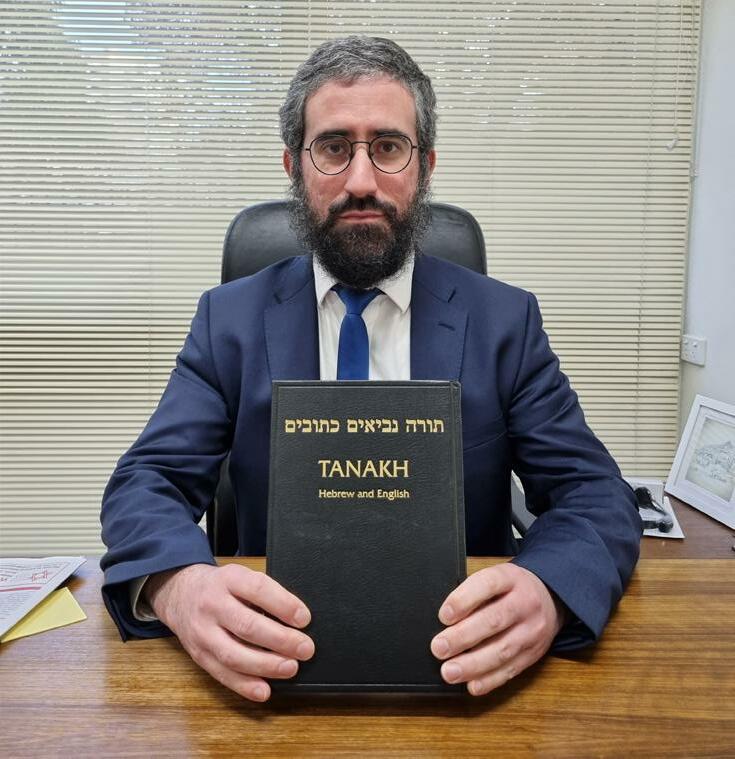
It looked like an ordinary book donation, the likes of which my synagogue receives regularly. A black Hebrew and English Tanach gifted to the shule by one of our long-standing congregants. After thanking the gentleman who presented the book to me, I asked him where it originated. He replied that it arrived out of the blue, in the mail. I became suspicious and began combing through its pages. Within seconds it became evident that this was not an ordinary Hebrew bible. It was Christian missionary material in the guise of Chumash.
The opening page included typical language, inferring the authors were Orthodox religious Jewish scholars. One expression in particular, "Torat Hashem Temima" is, in fact, the name of a bona fide, classic commentary on Chumash, which adorns the shelf of every shule. Upon further investigation, it emerged that coupled with this “Chumash” was another section called “Brit Hachadasha” (“The New Testament”). Astonishingly, that book translated "John" as "Yochanan" (like the famous Rabbi Yochanan from the Mishna) and "James" as "Yaakov".
These books were anonymously delivered to post boxes in predominantly Jewish areas with the clear aim of
duping unsuspecting recipients. To add insult to injury, the publishing company responsible, known as “The Society for Distributing Hebrew Scriptures”, proudly announces on its website that its mission is to provide free copies to all Jewish people “worldwide” as thanks and gratitude for being the people through whom God chose to pen his words. How magnanimous of them.
The sad reality is that Christian missionary activity is not a new phenomenon. It’s been happening for centuries, but nowadays it’s become much more insidious. Whereas it used to be done with the sword, now it’s done with guile. After Christianity broke away from Judaism, presenting itself as the “true” version Judaism, its leaders were presented with a problem: If it was the
Friday, Dec 16, 2022 8:21 pm
Shabbat ends, Dec 17, 2022 9:27 pm
Friday, Dec 23, 2022 8:25 pm
Shabbat ends, Dec 24, 2022 9:30 pm
Friday, Dec 30, 2022 8:27 pm
Shabbat ends, Dec 31, 2022 9:32 pm

Friday, Jan 6, 2023 8:28 pm
Shabbat ends, Jan 7, 2023 9:32 pm
Friday, Jan 13, 2023 8:27 pm
Shabbat ends, Jan 14, 2023 9:30 pm
Friday, Jan 20, 2023 8:24 pm
Shabbat ends, Jan 21, 2023 9:26 pm
Friday, Jan 27, 2023 8:20 pm
Shabbat ends, Jan 28, 2023 9:21 pm
Friday, Feb 3, 2023 8:14 pm
Shabbat ends, Feb 4, 2023 9:14 pm
Friday, Feb 10, 2023 8:07 pm
Shabbat ends, Feb 11, 2023 9:05 pm
Friday, Feb 17, 2023 7:59 pm
Shabbat ends, Feb 18, 2023 8:56 pm
genuine expression of Judaism, why didn’t the Jews embrace it? Christianity grew exponentially from converting pagans and heathens, but Jews remained loyal to Judaism. Hence, since the beginning of Christianity itself, its mission statement was to convert the Jew. One Jewish convert was worth more to the founding Christians than hundreds of pagans because that Jew brought legitimacy to their cause. Through the centuries, they tried forcing Jews to convert though compulsory public debates and coercive and often violent tactics. In the past they were mostly unsuccessful but today, by preying upon ignorant Jews, they have seen some “triumphs”. Although secularism and assimilation pose a far greater risk to the Jewish community than missionaries, we cannot, and should not, ignore that the threat is real. Jews with little to no knowledge about their Jewish heritage are easy targets for missionaries. I vividly recall an episode while studying as a bachelor in a Rabbinical College here in Melbourne. The Rosh Yeshivah (dean) clapped on the Bimah and instructed us all to close our books, leave the study hall, board a bus and travel to the Glen Eira Town Hall. There, we were told, a gathering for newly arrived Jewish immigrants from the former Soviet Union was to take place … at the invitation
of a Christian missionary group. The missionaries understood their target well – Jews with no religious background who arrived in Australia looking to reconnect to their roots.

I engaged a lady in discussion as she was walking into the building. It was clear she had absolutely no idea what she was signing up to. She thought she was about to become part of a Jewish congregation. I explained the reality to her, successfully dissuaded her from entering and referred her to the local Chabad House that caters for Russian Jews. She was left tearful and thankful. I was left indignant and outraged. The organisers knew exactly what they were doing by targeting specific Jews and capitalising on that ignorance is an act of moral bankruptcy.
On Chanukah we are reminded of the Ancient Greek’s immoral attempt to derail the Jews from their religion. They tried to divorce our ancestors from their spiritual roots and replace them with Greek philosophy and pagan culture. The Jews withstood that attack on our soul and have been fighting against missionary activity ever since. Our role is to inoculate ourselves through strong Jewish education, because the more we know about our own identity, the better we’ll be placed to maintain it.
reading or lighting other lights – therefore a serving candle (shammash) is used to light the Chanukah lights instead
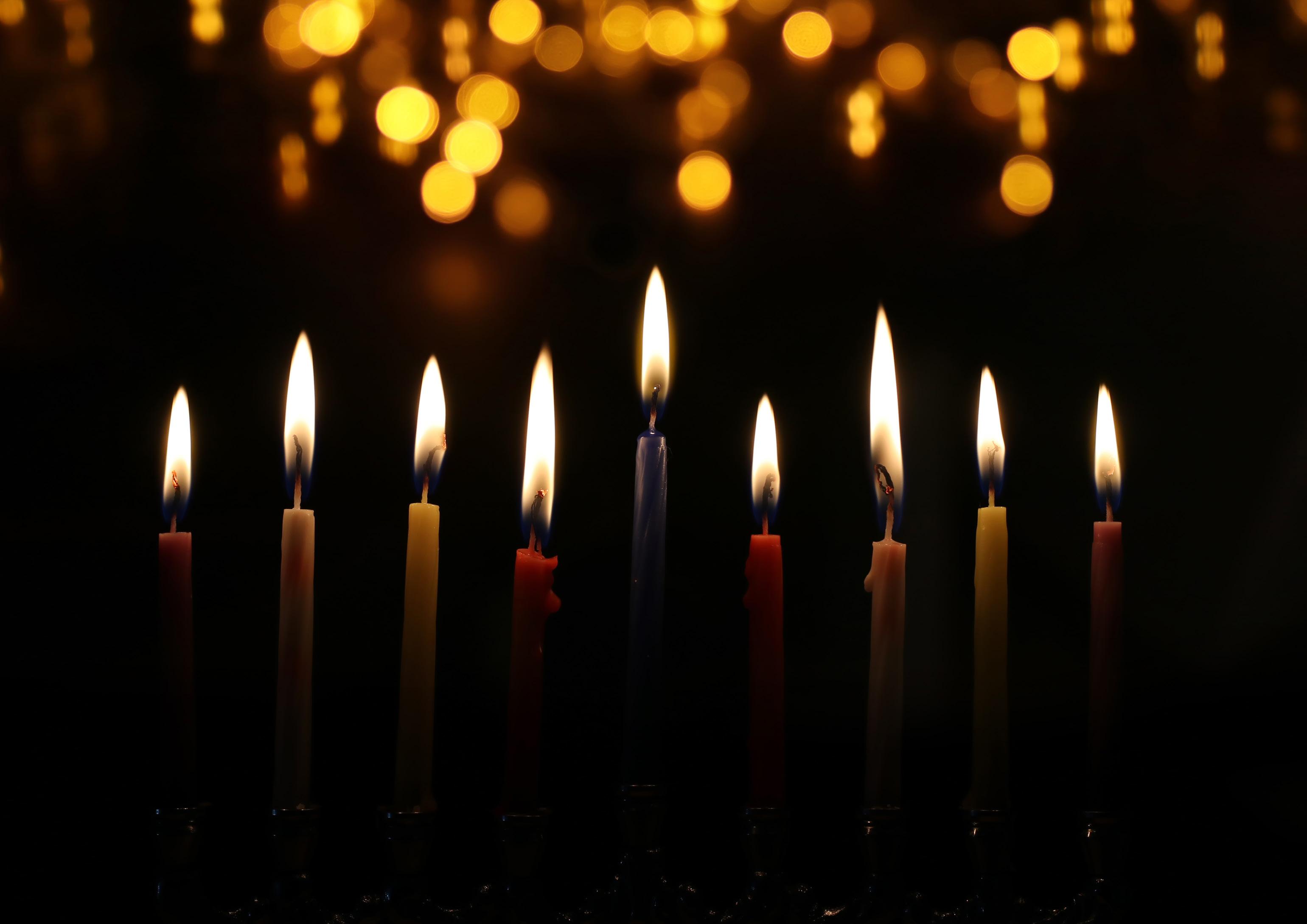
19. Jimmy Carter. In 1979, following weeks of seclusion in the White House after Iranian students took over the U.S. embassy in Tehran seizing 52 diplomats and citizens, President Carter emerged and crossed over to Lafayette Park. He lit the large Chanukah candelabrum, dubbed the “National Menorah,” erected in the park with private funds and delivered brief remarks
MIKE WAGENHEIM COURTESY: JWIRE.COM.AULast week’s high-profile White House roundtable on antisemitism garnered plenty of headlines. Now, according to those present, the real work starts.
an obligation to condemn these vile acts. We must not stay silent. There is no either-or. There are no two sides. Everyone must be against this.”
One is a seven branched candelabrum – the other nine-branched.
UK Parliament 16. In outer space – Hoffman made five flights as a Space Shuttle astronaut. Among the Jewish items he took into space were a Dreidel, which he spun for an hour, a Mezuzah, which he attached to the space station bunk bed he and fellow Jewish astronaut Scott J. Horowitz alternately used, and a Hanukkah menorah
17. Doughnuts are deep-fried in oil. (The story of Chanukah includes the miracle of the oil –hence it became a custom to eat food fried in oil such doughnuts and latkes.)
18. Jewish law prohibits making any use of the actual Chanukah lights e.g. for

20. As a general rule, two blessing are recited before kindling the Chanukah lights but on the first night, we also recite the Shecheyanu blessing – which we say in gratitude that we have started a new festival
21. The Amida and the Birkat Hamazon (The Grace After Meals)
22. George Frederick Handel 23. The one in Israel has on it the four letters Nun, Gimmel, He and Peh –standing for Nes Gadol Hayah Po – a Great Miracle happened here. The dreidel for use in the Diaspora has on it the four letters – Nun, Gimmel, He and Shin, standing for Nes Gadol Hayah Sham, a Great Miracle happened there 24. Zeus 25. Festivus
America is facing an “epidemic of hate,” said Second Gentleman Doug Emhoff, who chaired a discussion with Jewish leaders at the Eisenhower Executive Office Building. “Let me be clear – words matter. People are no longer saying the quiet parts out loud, they are screaming them,” said Emhoff, the Jewish husband of Vice President Kamala Harris. “We cannot normalise this. We all have
The roundtable comes in the days and weeks former US president Donald Trump hosted antisemitic rapper Kanye West and white supremacist Nick Fuentes at his Mar-aLago home. Both guests professed admiration for Adolf Hitler.
Twitter has been flooded with antisemitic content since CEO Elon Musk’s takeover and Black Hebrew Israelites have been marching through Brooklyn, claiming today’s Jews are fake. Antisemitic hate crimes in New York City last month were up 125 per cent over last November’s figures.
Philippa Langley (Sally Hawkins) is a quirky, intelligent, divorced mother who suffers from chronic fatigue syndrome.
Overlooked for promotion at work, a night at the theatre changes the trajectory of her life.
She is taken by an actor’s (Harry Lloyd’s) representation of Richard III in Shakespeare’s play of the same name.

As a result, she starts researching the late King of England, reading all she can about him.
She determines that he has been misrepresented as a murderous villain.
Aged 32, Richard III was killed in the Battle of Bosworth Field – the last decisive confrontation in the War of the Roses, that marked the end of the Middle Ages – in August 1485.
In her quest to find out more about Richard III, Langley – in her mid 40s –joins a passionate group of acolytes, members of the Richard III Society.
One of the question marks surrounding the King is where he was buried and how his body, which was never recovered, was disposed of.
Through her driven sleuthing, Langley defies cynicism, popular and conventional thought, and academic establishment to solve the mystery.
Her steadfast companion throughout is none other than Richard III himself, as represented by the actor who played him in Shakespeare’s play.
It is Richard III’s apparition that appears only to her throughout her quest to uncover the truth.
Written by Steve Coogan (who also plays Langley’s ex-husband John) and Jeff Pope, The Lost King is a delightful charmer.
It is based on Langley’s book, The Search for Richard III.
Adroitly directed by Stephen Frears (who worked with Coogan and Pope on Philomena), the film is intriguing,

A few months ago Mathieu Roussel (Gilles Lellouche) moved with his wife Alice (Elisa Lasowski) and their young daughter from France to Siberia to take up his new role.
A caring and considerate father, his marriage is on shaky ground after his wife cheated on him.
But nothing can prepare him for what is about to go down.
One night, without warning, the Russian secret police barge into his home and forcefully take him and his daughter away.
He’s thrown into jail on trumpedup charges of disseminating child pornography and molesting his daughter.
That is merely the start of his ordeal, which includes being bashed and escaping with the help of the daughterin-law of a high-ranking Russian agent.
The word Kompromat comes from a Russian KGB slang term short for “compromising material”.
Roussel’s die is cast with his liberal attitude to the arts and not reading the fact that Russians view things differently to the French.
Kompromat, the movie, is loosely based on fact. Put another way, it
was freely inspired by a true story that happened to a Frenchman living in Russia.
The film drips with tension and intrigue.
It is one of the better recent examples of the genre thanks to the compelling writing of Cary Ferey and director Jerome Salle.
Lellouche is agreeable in the lead as a decent guy caught up in a horrible situation.
He channels a naïve, everyday man who develops smarts while going through the ordeal that he does. I also liked the narrative arc given to his “helper”
dramatic, comedic and whimsical, combining warmth with pathos.
In less accomplished hands, digging around for the remains of Richard III could quite conceivably have been dry and uninspired. Fortunately, not so here. In fact, far from it.
Much of the movie’s success gets down to the characterisations.
If there is a better, more consistently outstanding actor than Sally Hawkins I am yet to discover him/her/them.
She is superb in her portrayal of the too often brushed aside “hero”, displaying vulnerability and persistence.
It is the way she carries herself, as much as what she says and how she says it, that greatly enhances her performance.
Steve Coogan is personable as Langley’s seemingly decent and wellmeaning ex who still plays a big part in her life.
Mark Addy is compelling as the ultimately self-serving archaeologist beholden to the University of Leicester, which claimed much credit for “its” discovery.
Rated M, The Lost King benefits from its lightness of touch. It is a very nice film and scores a 7½ out of 10.
While Roussel is far more open and effusive, Svetlana
In spite of that, she is determined to do all she can to help Roussel and risks her own safely more than once by so doing.
She has a love/hate relationship with her physically and psychologically scarred husband, Sasha Rostov (Daniil Vorobyov), a victim of the war in Chechnya. Playing mercenary characters are Michael Gor as Rostov’s father, a federal security agent
who Svetlana detests, and Igor Jijikine as enforcer Sagarine. They are thoroughly unlikeable types who have no “off” buttons.
So it is that the film captures the jackboot mentality of the Russians in continuing to push to bring Roussel down.
Even though it pushes through the two-hour mark, I found the time passed quickly.
Kompromat is engaging fare.
Rated M, it scores a 7½ to 8 out of 10.


